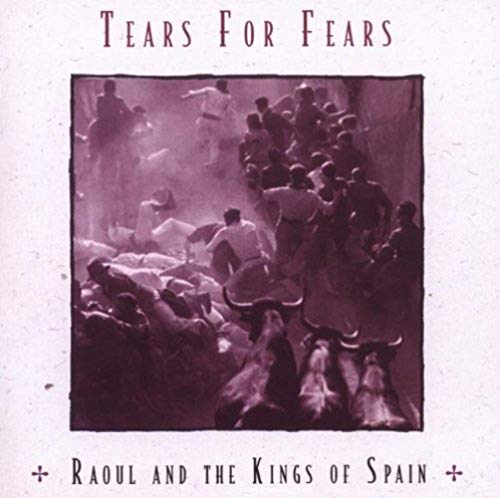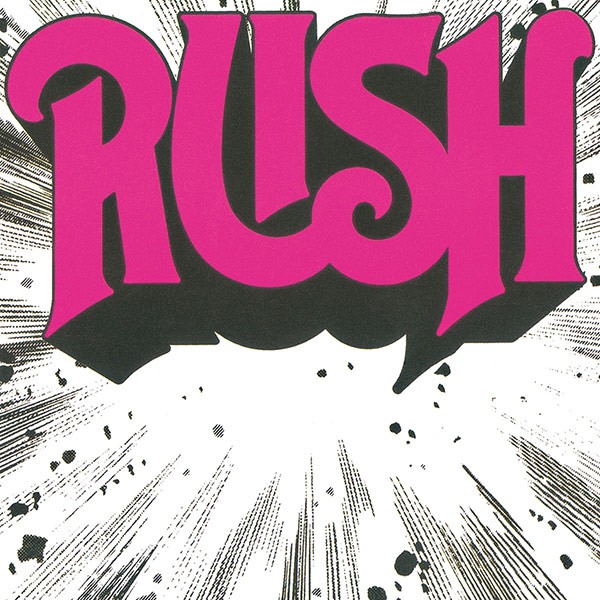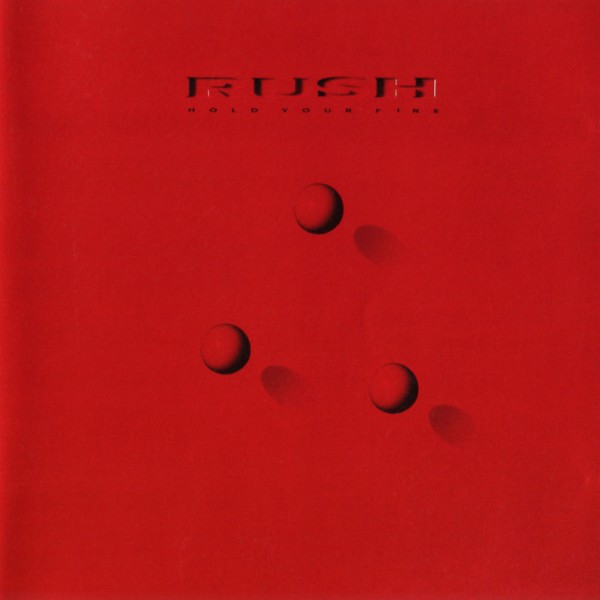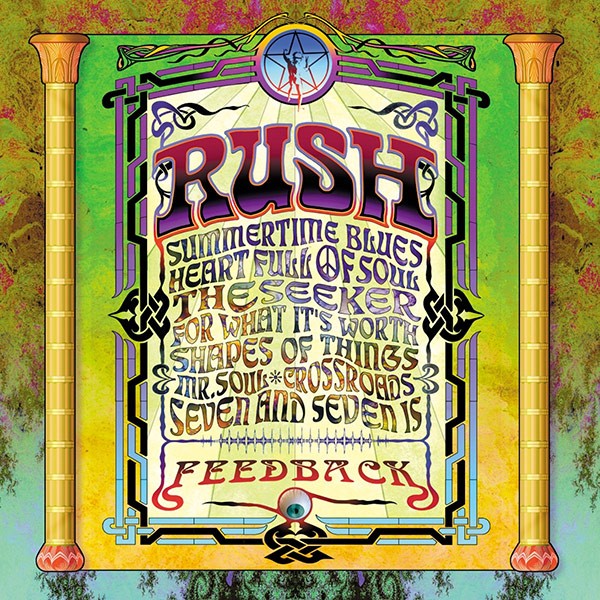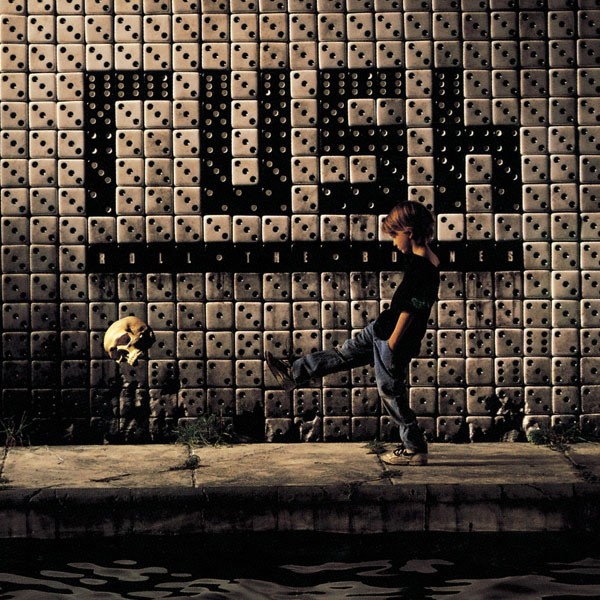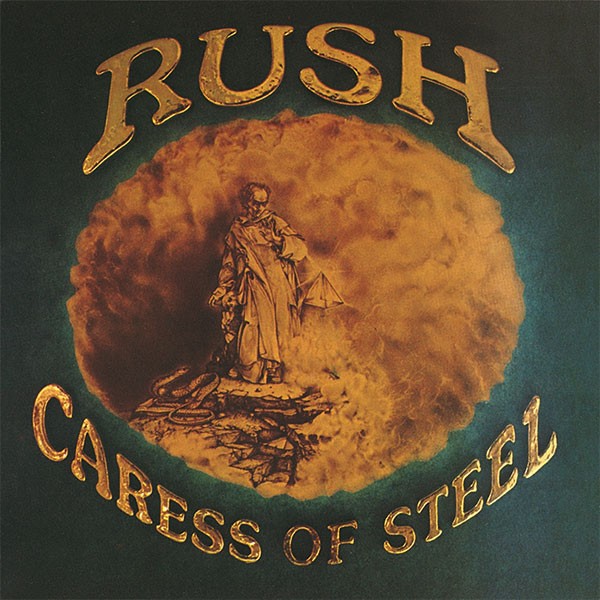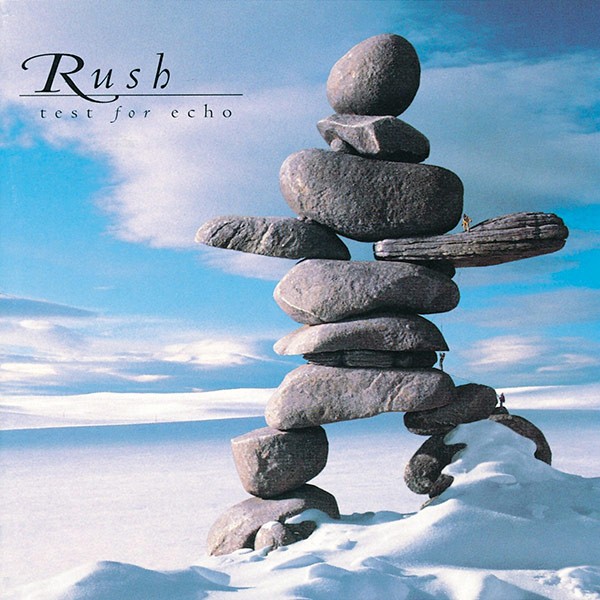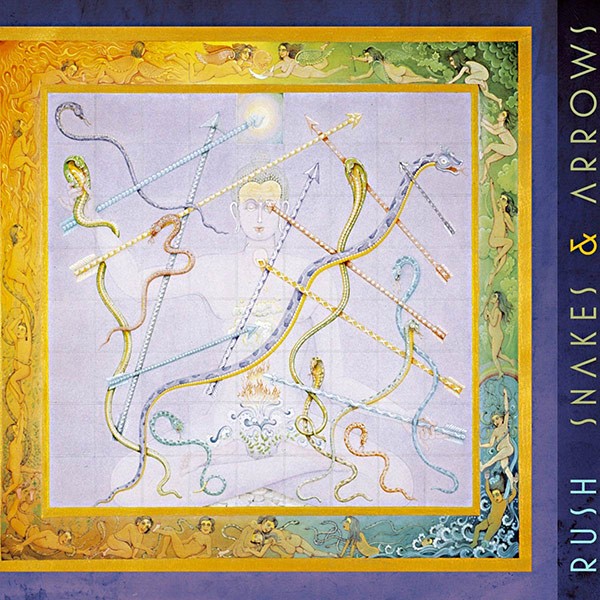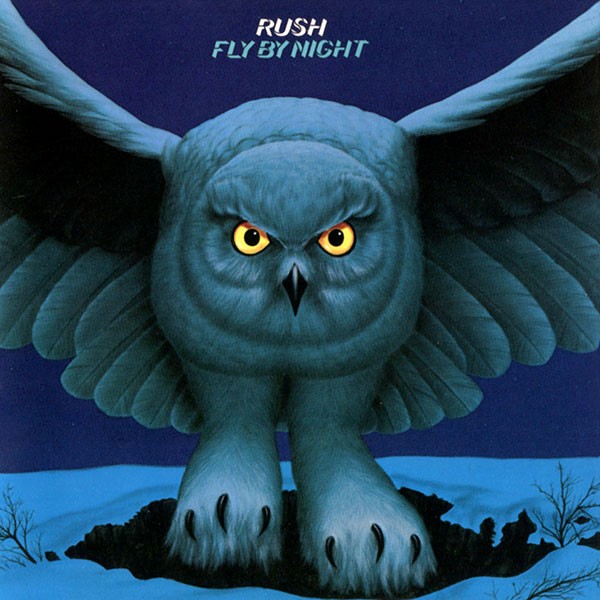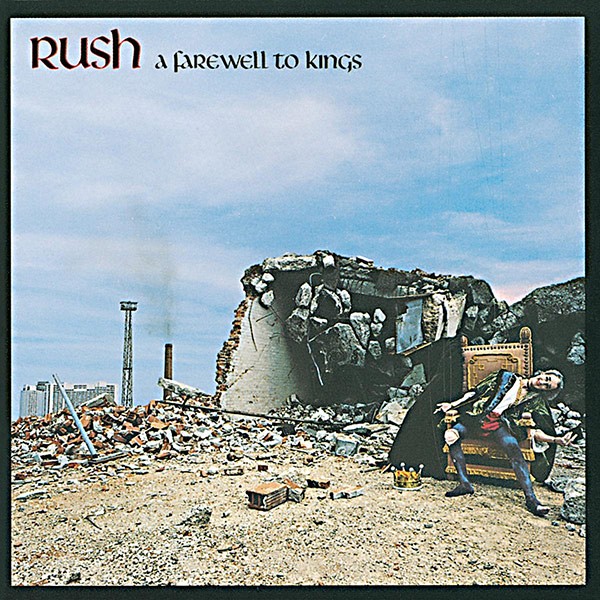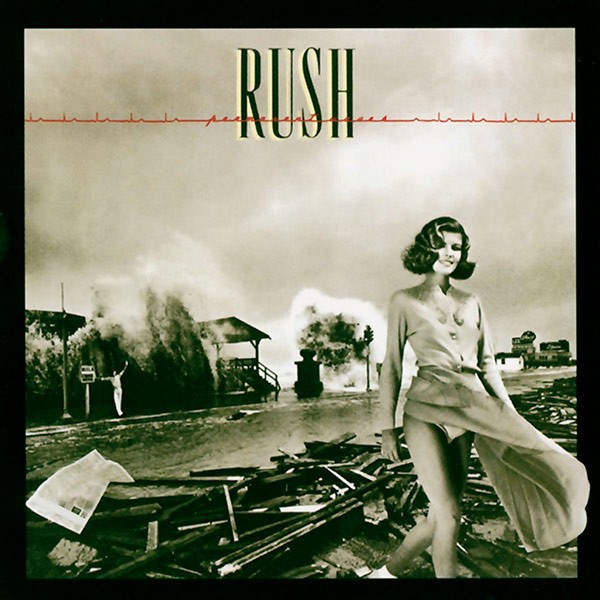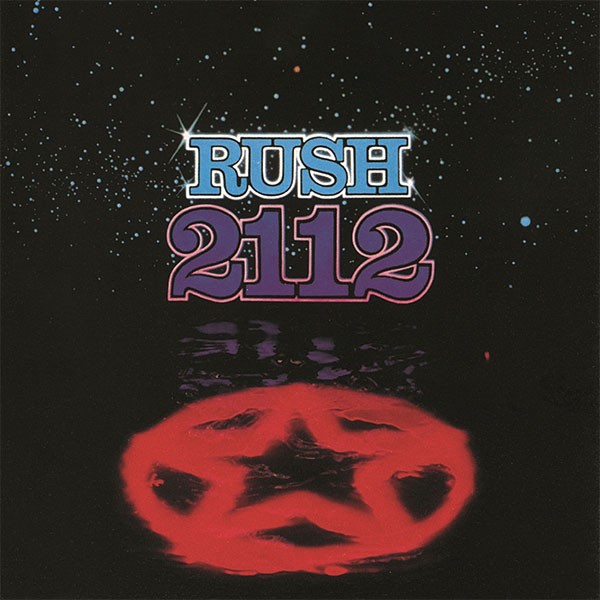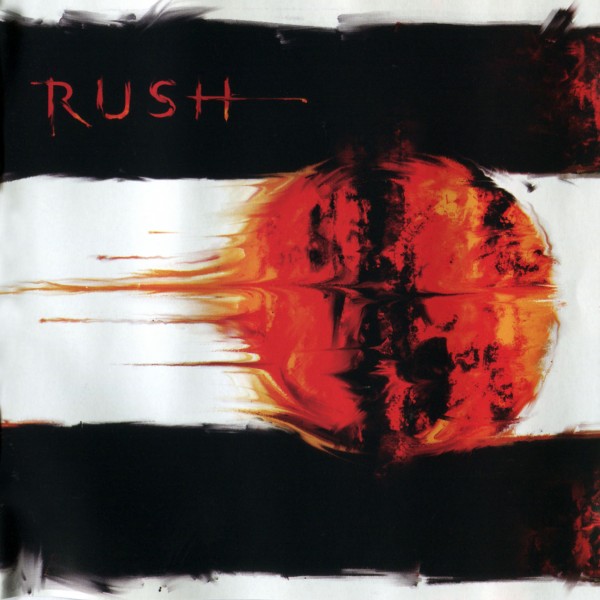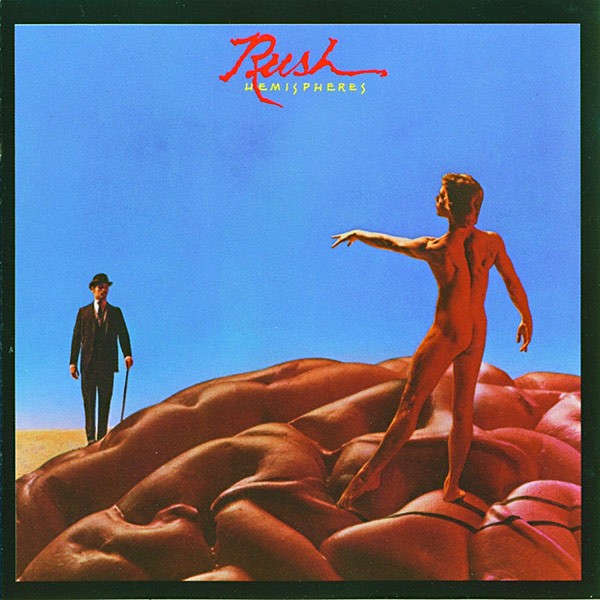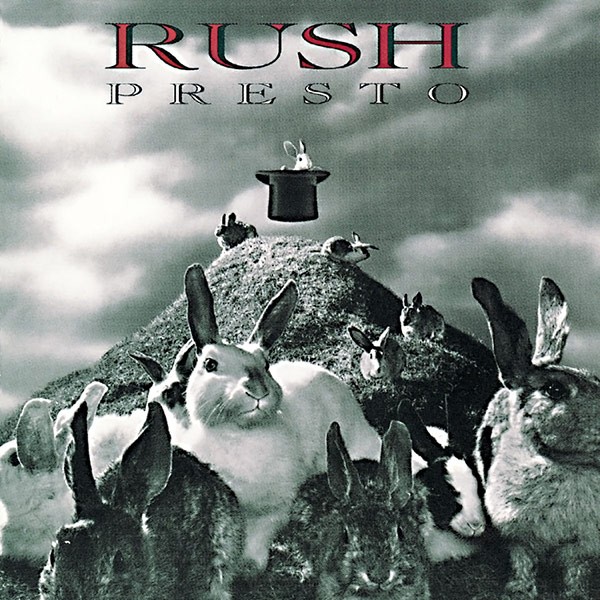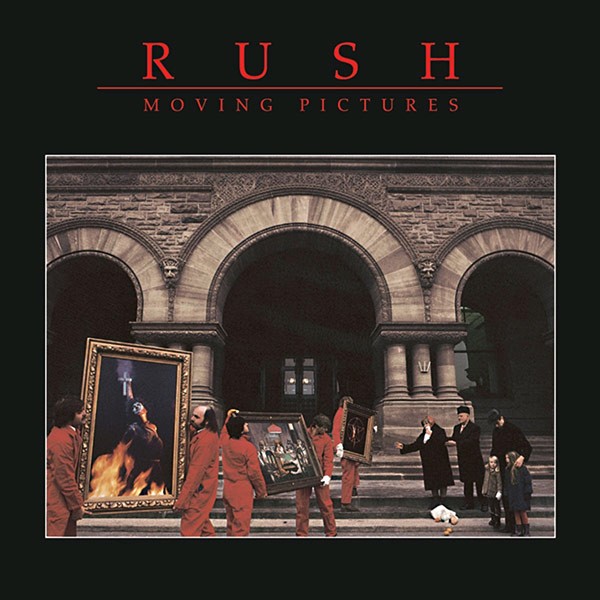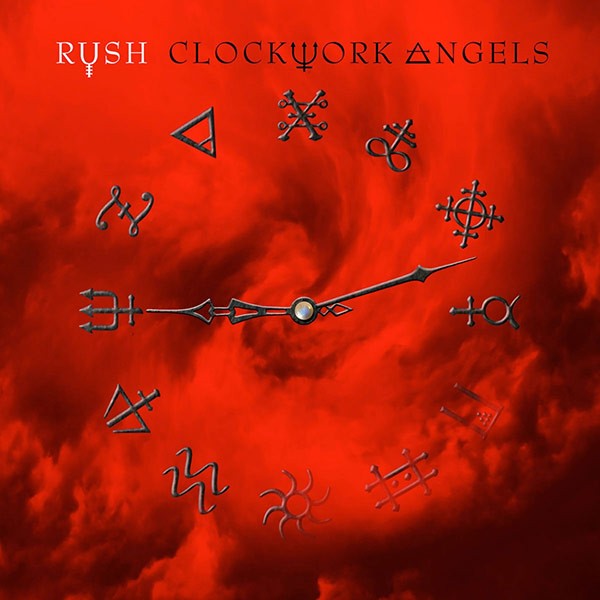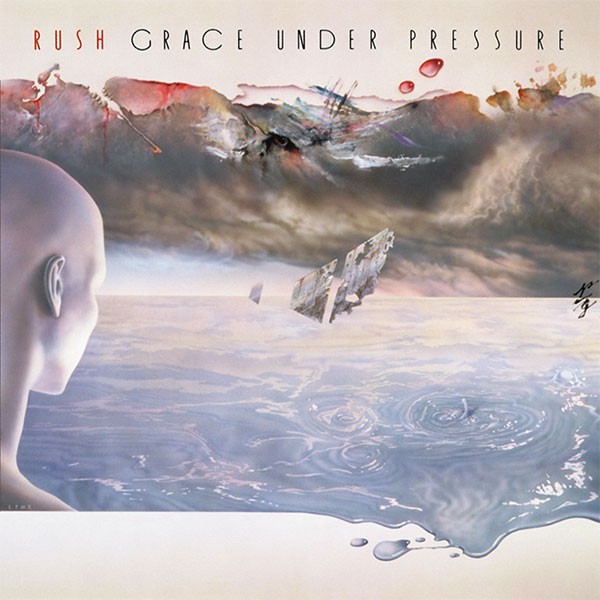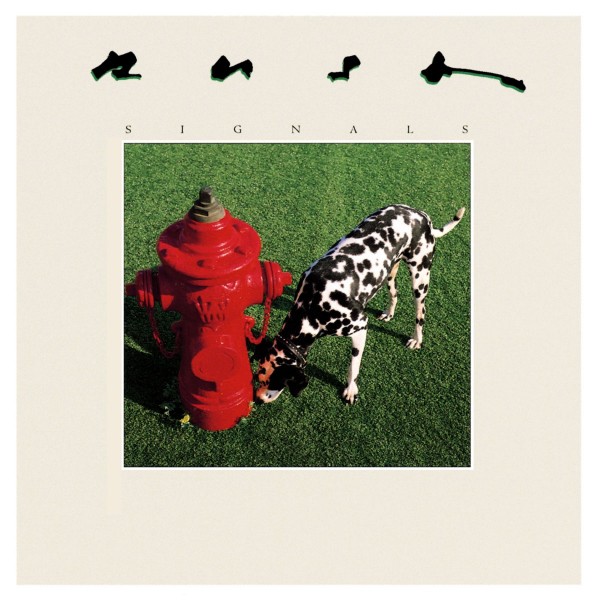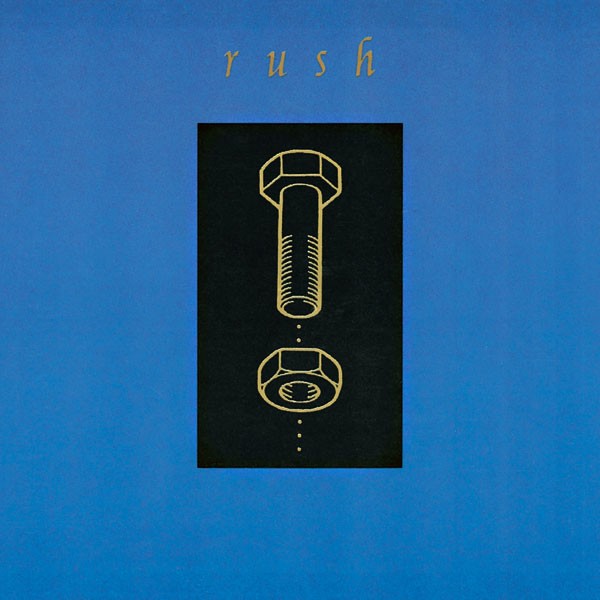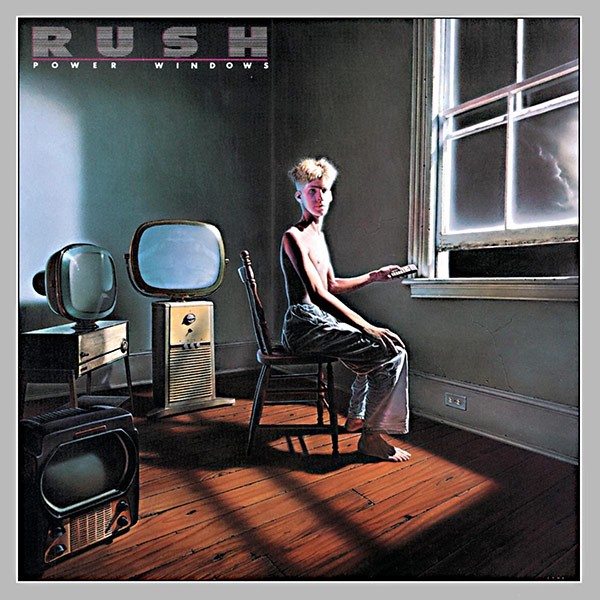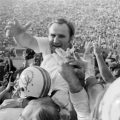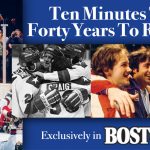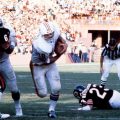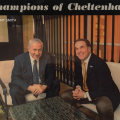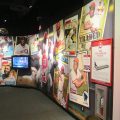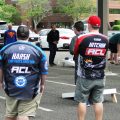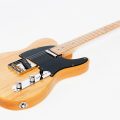Music

Neil Peart 1952-2020: Tribute to The G.O.A.T. Rock Drummer

A thoughtfully considered Neil Peart tribute, from a devoted Rush fan.
I remember where I was when I heard John Lennon was murdered. I remember where I was when I heard that planes had crashed into the World Trade Center. And I remember where I was when I learned that one of my biggest musical heroes had passed away.
It was January 10, 2020. I was upstairs in my living room, playing with my kids on a weekend afternoon. At 4:28 PM, my phone chirped with a text from Greg Miller, a friend of mine since we were four years old…and a fellow Rush fan since we were in our teens.
“Dude!!??? Did I just read that right!!! Neil Peart is DEAD??”
Almost at the instant I read the text, the phone rang. It was Chris Salvatico, another longtime friend and another fan since high school, where I was well known for my beyond fanatical dedication to a rock band. He had heard the news on the radio, and of course I was the first person he thought of.
Suddenly this life’s journey was on the other side of my favorite band’s drummer still being alive. In that moment, any sliver of hope that we Rush fanatics clung to of seeing our musical heroes play on stage again, maybe just one more time, was gone.
2020 would have more than enough misery and heartbreak that people would be gladly wishing it away by the end of it. I suppose I should be grateful that losing Neil Peart and Eddie Van Halen, two musicians I never met, would be the toughest thing I would have to deal with on a personal level.
While both men passed from this earth prematurely, they were both here long enough to give us an outstanding catalog of music…blood-pumping soundtracks for our lives.
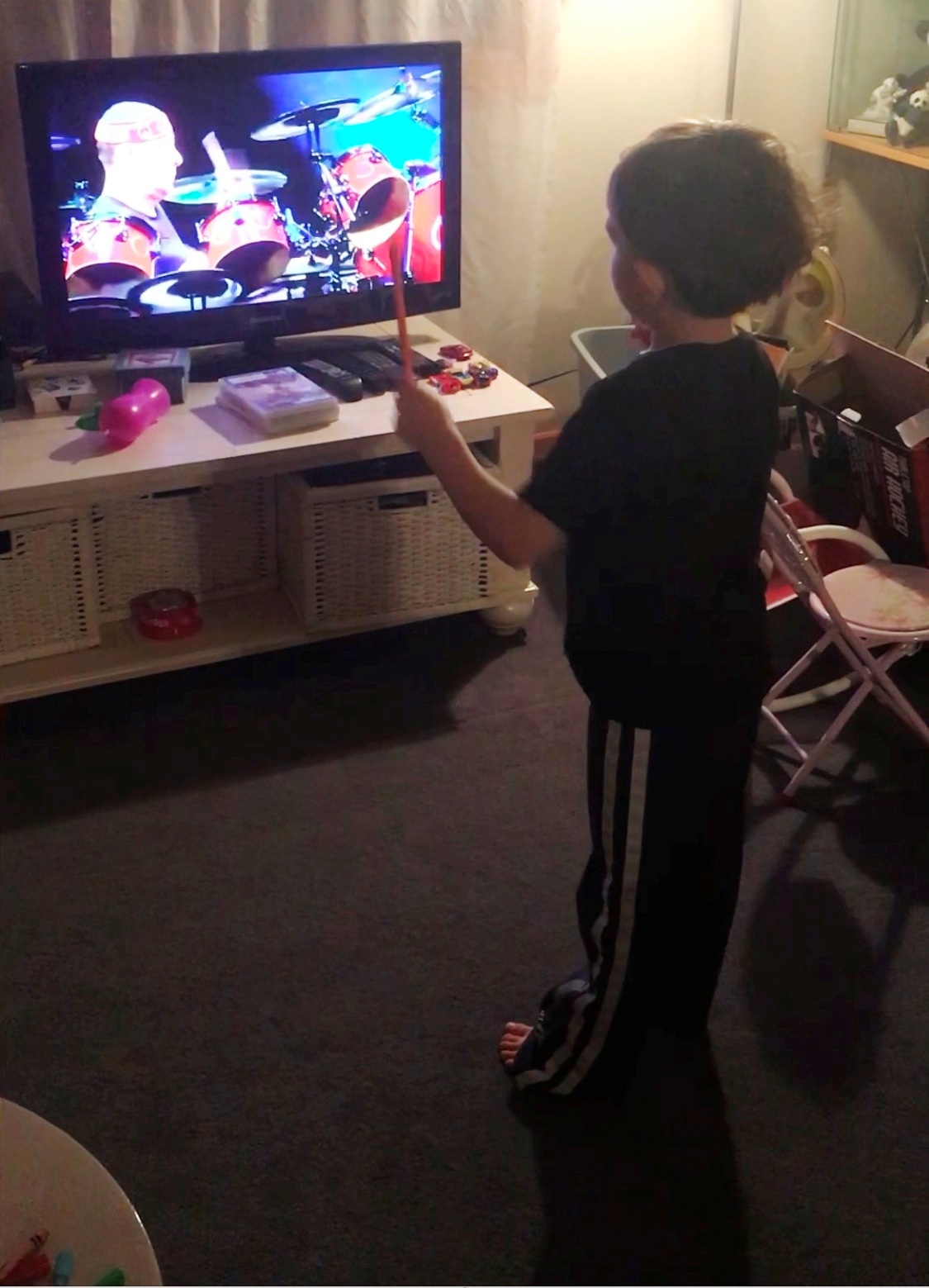
Already air drumming with the best at age five.
A New Generation of Neil Peart Fans
As I would do some months later following Eddie Van Halen’s passing, I filled a thumb drive with Rush music and played it in my car for several weeks. Soon my son, just four at the time, was taking to the music Dad was playing. He is now a big fan…watching Neil drum solos on YouTube constantly, frequently asking Dad to put Rush CDs in the stereo, even setting up a miniature kit of various toy drums that he bangs along with his favorite Rush videos. At five, Neil Peart is already his hero. No paternity test will ever be needed with this one.
At some point, his favorite songs have been “Caravan”, “The Main Monkey Business”, “YYZ”, “Crossroads”, “Tom Sawyer”, “Roll The Bones”, and “The Big Money”. He likes watching the live videos for “One Little Victory” and the “R30 Overture”, too.
So evidently, he isn’t partial to any particular era, unlike so many fans who think Rush was never as good as they were on Moving Pictures or 2112. Not only is he not bound by some imaginary noose of expectations for his favorite artist, at five, he doesn’t yet know that the music is too old to possibly be cool.
I remember going to Rush concerts in the 2000s, and seeing kids that were my age when I became a fan, wearing tees for albums that were released before they were born. In 2009, I went to a Mets game at Citi Field, and unexpectedly ran into an old friend from my bartending years. He was at the game with a young man who was sporting a Power Windows T-shirt. I marveled at this, and gleefully informed him that I had seen that show from the sixth row at the Philadelphia Spectrum. “I was like, 20 feet away from Alex!”
Rush may not be for everyone, but for the personality type that gets into their music, it is as timeless as any in this world.
There were, of course, other bands with iconic drummers whose fame long outlived their existence, or at least their peak years. Led Zeppelin and The Who, and The Beatles for that matter, all had unique stars behind the kit.
But the drums weren’t the main catalyst for launching any of them to mega-stardom. With Rush, it most definitely was. As great as Geddy and Alex were as musicians and songwriters, it was the drums more than anything else that propelled Rush to a level of cult fanaticism unequaled in rock music. The unusual beats, oddball time signatures, memorable fills, and the technical wizardry of the man behind the kit…more than anything else, Neil Peart’s drumming defined this already great band.
You need only to have attended a Rush concert and seen hundreds of arms flailing away at imaginary kits, often quite accurately along with the fills, to know that.
“Tom Sawyer”, Rush’s signature song, became a rock staple that still holds up today almost entirely because of the drums. Maybe that synthesizer riff in the middle is a pretty cool hook, but the tune wouldn’t have killed like it did without the drum fills following the guitar solo. Four decades after its release, no classic rock anthem inspires more completely shameless air drumming, often with no regard even for chicks in the room.
No drummer…no musician…inspired listeners to memorize passages like Neil Peart did. The beats and fills were always an integral, key element of Rush songs. You can pick 20 tunes from any era in the band’s history, and very often not hear the same fill twice.
Rock Music’s Greatest Drum Solo
It’s a challenge to think of any rock artist whose live show featured the drum solo as the highlight…especially for bands as established as Rush were. Sure, Phil Collins, Bill Bruford, Danny Seraphine and others could play entertaining and skillful solos, but one hardly considered them the pinnacle of their bands’ shows.
But the Neil Peart Drumming Showcase? Yes, for many in the audience, that was the apex of the evening. Only at Rush concerts could you feel the audience’s growing excitement that the drummer would soon be taking over the stage.
It wasn’t just the profoundly challenging technical skill, the limb independence, or the blinding speed, crossovers and waltz enhancements that were just as fun to watch as to listen to. A Neil Peart drum solo was literally a piece of music, especially in Rush’s later years when brass samples, an electronic marimba, and Buddy Rich Big Band horns all became a part of his 7-plus minute percussive masterpiece.
A Neil Peart drum solo could often be the clincher that turned one into a dedicated Rush addict. That certainly was the case with this young fan, who shortly after discovering this band had “YYZ” from the Exit…Stage Left LP…and its insanely fast solo…near the top of his most-played Rush cuts. When their third live set, A Show of Hands, was released, I happily bought it for just one reason: the drum solo and its new sound effect samples, which now had a name: “The Rhythm Method”.
As electronic drum technology evolved over the years, Neil’s solo did too, becoming even more musical, as the Professor added new elements to it with every tour. As a treat for the fans whose favorite part of a Rush show was the drum solo, Neil even released a video dissecting each part of his “Der Trommler” performance on Rush’s 30th Anniversary Tour, including how he both came up with each section and learned how to play it.
No drummer in rock music history commanded such stature when his bandmates left the stage, because no drummer in rock put the effort into his solo showcase that The Professor did. Like his approach to conjuring up challenging and suitable parts for Rush songs, or constructing words for Geddy to sing, Neil saw the drum solo as a craft, something that he believed should be as entertaining as it could possibly be.
I saw Chicago, Genesis, Yes, Van Halen, King Crimson, and a number of other acts that prominently featured a drum solo in the show. But no one at the Van Halen concert leaned over to me and said, “It’s Alex Time.” Everyone at Rush concerts anticipated Neil Time.
Rush had a devoted enough following that they could get away with leaving some very popular staples out of their set and still leave a crowd blown away. I’ve seen Rush shows that were missing “Freewill”, “Limelight”, “Subdivisions”, and “2112 Overture” from the setlist (to name a few), and the audience never seemed to mind.
But there would likely indeed be unrest, torn tickets, and declining T-shirt sales if a Rush audience were deprived of their drummer’s solo event.
A Rarely Equaled Rock Wordsmith, Too
Not many musical artists, certainly not in 1980s rock, were as dedicated about putting beautifully composed words in their songs. Neil Peart wrote so many verses full of thoughtful observations about life that I can’t think of, say, five favorites. It’s enough for me that, to this day, he’s given me the best answer I’ve heard to life’s most infernal question: Why are we here?
Peart covered a lot of topics in Rush lyrics…have you ever heard a rock song full of anagrams?…but pursuing one’s dreams was a major theme. Nearly the entire Roll The Bones record contemplates this, as does the entire first side of 2112. He could be encouraging about following one’s heart, as in “Middletown Dreams” or “The Analog Kid”, but he was realistic about the trappings of fame too, as in “Limelight” or “Superconductor”.
Ayn Rand’s capitalist views were a strong influence in the band’s early years, then he turned to science fiction fantasies. As the band became increasingly popular, Rush’s lyrics commented on the human condition less metaphorically, and sometimes went into darker places, especially around the Grace Under Pressure period.
You can see a clear change in Neil’s lyrical demeanor between Test For Echo and then Vapor Trails, which, as every Rush fan knows, were the two albums on either side of devastating personal tragedies in his life. Test For Echo is full of lyrics written by a man confident in his ability and in sharing his viewpoint about how to best live life. Following the loss of his daughter in a car accident and then his wife to cancer ten months later, the lyrics on Vapor Trails reveal a soul that had risen from the ashes, but was clearly forever scarred by the blows. The words in the title cut are particularly emotional and heartbreaking.
No doubt this patch of the journey affected his view of life in general very deeply, and it was bold of him to share a great deal of that with the world. It would be easy to understand anyone questioning a Benevolent Supreme Being, as he did quite effectively in songs like “The Stars Look Down”, but he also directed angst at faith in general and its practitioners. Or more correctly, its abusers.
As a practicing Catholic who grows weary of anti-Christian platitudes from wealthy performers, I admit to taking issue with some of it, especially several songs on the Snakes & Arrows album. But I’ve since come to realize that there is a lot of truth to what he wrote on that record, certainly so if one had a darker view of human existence as he understandably did. I am careful not to take the same viewpoint, but “Bravest Face” and “Good News First” are powerful examples.
Whatever the focus of Neil’s words, there was never any lack of precision or clarity, never any lack of a powerful statement contained within them. Whether you agreed with what he thought or not, he always made the point.
Like with Rush’s music, you very often didn’t get the words to a Rush song in one listen. A song like “Subdivisions” endures because there are so many ways it grabs the listener…the classic synthesizer riff, the soulful guitar solo, the epic drumming behind the verses and towards the end. In the same way, the words of that particular classic take every opportunity to move the listener too. Just as one grasps “in geometric order, an insulated border, in between the bright lights and the far unlit unknown”, they’re hit with “some will sell their dreams for small desires…or lose the race to rats, get caught in ticking traps, and start to dream of somewhere to relax their restless plight”.
I remember a radio show called “Rockline”, where fans could call in and ask their musical heroes questions. Shortly after the Power Windows album was released, Rockline featured Geddy Lee. The host, the late Bob Coburn, asked Geddy about what inspired Neil in writing the words, saying, “The lyrics on this record are unbelievable!”
Geddy responded with something that has resonated with me ever since. He said, “Neil works very hard at everything he does. It’s another thing he works hard at.” Power Windows, still probably my favorite Rush record, was a shining example…it contained songs about the corruption of people in power, the design of the atomic bomb, the demands of a lifetime striving for excellence, the nonsensical destruction caused by nation borders, and the risks of being outward with your emotions. Unheard of for a rock record, especially in the MTV-polluted 1980s.
Every Rush album was like that. A new Rush release always gave you a whole slew of subjects to ponder, and you were offered an initial way of thinking about these things from someone who’d carefully considered them. The words in Rush songs, to those outside of Rush fandom, are an extremely underappreciated facet of their music. Yes, they were definitely intellectual…if you thought Def Leppard or Van Halen wrote deep stuff, Rush probably wasn’t for you.
Sometime after Power Windows was released, Neil gave a terrific interview to Guitar For The Practicing Musician magazine, that I actually still have laying around. (I scanned it and it’s an excellent interview; you can read it here.) The amazing thing reading it, even today, is that here was arguably the most highly regarded rock drummer of his generation, giving an interview entirely about writing lyrics.
But for a Rush fan who loved the words too, it was a fascinating read. I learned so many things just reading that interview that have helped me as a writer. One thing he pointed out was that there were two things you couldn’t compromise: inspiration and craftsmanship.
He pointed out that, “When an inspiration comes to you, it doesn’t matter how inconvenient it is, you must take advantage of it at the time.” That is SO true…and I have probably missed opportunities to write best-selling books because I thought “Oh, I’ll remember that” about an idea that I would later be fuming over having forgotten.
He said that “craftsmanship speaks”, and that he could tell when the lyrics to a song were written in five minutes. Most of us could.
Rush fans got it. There was always something more in the words of a Rush song, another line, another verse, that you missed in the first listen and that knocked you over the head in the second. Just as their music contained little turns and riffs and drum fills that you didn’t catch the first time. The albums that grow on you are always the best ones, and every Rush album had that quality.
If you didn’t get it, as most critics didn’t, well, that was your loss. If you were willing to make the investment of giving a Rush album a few listens…which you likely had no choice but to do if you had a Rush fan friend…you soon would get it, and you’d be wowed as much by the words as the drums.
Was Neil Peart The Best Rock Drummer of All Time?
Like I did with Eddie Van Halen, I thought any Neil Peart tribute should answer the question of whether he really was the greatest rock drummer that ever lived. I find it hard to rank any drummer above Buddy Rich overall, but in the realm of rock music, Neil had few peers.
So I’ve produced this list of well-known rock drummers, with my comments on what I think made Neil a better one. I LOVE ALL OF THESE DRUMMERS…please do not think I am being critical of them. This is just here for your next music conversation with friends at the bar.
Keith Moon. It’s doubtful that The Who would have become the rock monsters that they became without the certified lunatic behind the drum kit. He had a style like no other and is always included in any discussion of rock’s greatest. Moon was also, as you can clearly tell listening to the Fly By Night album, a heavy influence on Peart himself.
However, I could say that Neil ultimately became a better overall drummer than Moon in his career. For one, he was more precise…John Entwistle once said Keith Moon was the hardest drummer in the world to play with; Geddy Lee never had any such complaint about Neil Peart. Neil could play with as much reckless abandon as Keith on a record…but Peart would memorize that reckless bit, and play it precisely on the stage.
John Bonham. I underestimated Bonham’s technical ability until I watched a video comparing him with Peart soloing…and definitely holding his own. Bonham was in fact an outstanding drummer technically, and he could play as fast and as precise as nearly anyone in his day.
If nothing else, though…and I remember debating a Led Zeppelin fan friend about this…Peart produced more songs that became rock staples because of the drums. “Tom Sawyer”, “2112”, and “Subdivisions” are great examples. Bonham had an unmistakable sound and was perfect for Led Zeppelin, and the drums are always great in Zeppelin songs. But he didn’t quite match the imagination and variation that Neil added to Rush records.
Bill Bruford. Bruford is a respected icon among prog drummers especially, and rightly so. He’s played with Yes, King Crimson, U.K., and Genesis…and he made them all better with his jazzy style. A common phrase I’ve read about Bruford is that he was “too rock for jazz and too jazz for rock”. Absolutely true, but when he got somewhere in the middle, he shone like few could.
Give Bruford props for moving from rock to fusion to jazz in his career and excelling at all of them. On several levels, though, I still think Neil was better, especially having seen them both live. Bruford sometimes duplicated the sound of the records live, sometimes not, and his solos in the seven shows I saw him were great. Peart duplicated the sound of the drums on Rush records nearly 100% of the time, and his solos were even better.
Phil Collins. In light of his mega-stardom as a singer and songwriter, it’s easy to dismiss how great a drummer Phil really was, even garnering lavish praise from Neil himself for his performance on the Selling England By The Pound record. Especially in the Peter Gabriel-led era of Genesis, Phil came up with some profoundly complex rhythms and skillfully executed them live. He may have lost the desire to produce that complexity in Genesis’s later years, but he was always a more skilled drummer than he was given credit for.
If I were to ultimately rank Neil as a better drummer, it might be on just on one level…the drum solo. Even playing a duet alongside Chester Thompson, Phil’s drum solos didn’t compare to the visual and aural spectacular that was “The Rhythm Method” or “O Baterista”. As I’ve said, Neil’s drum solo, unlike Phil’s (or any drummer’s, for that matter), was a highlight of a Rush show…and that was no small feat to pull off. I can’t say that about Genesis shows.
Ginger Baker. I had a musician friend once tell me that he thought Baker could have been a really great drummer if he chose to practice more, which I thought was humorous. I might believe it given the overall sloppiness of his playing…although I do enjoy listening to Cream’s better stuff for that reason.
It’s just my opinion, but Ginger doesn’t ultimately hold up as one of the greats alongside Neil. He was a cool rock icon and could play interesting bits really well, but he ultimately didn’t quite establish himself as a rock drumming giant in the way Moon, Bonham or Peart did.
Alex Van Halen. Alex had a good rock sound and could play fast, but he wasn’t in Neil’s league as far as skill, imagination or creating a worthwhile solo. He happened to have a brother in his band who was an enormously talented guitar player and songwriter, and he played up to his own abilities and let his brother lead the way. He was fine for Van Halen, but not one of the all-time greats on a kit.
Danny Seraphine. It’s hard to top Chicago’s “Introduction” as one of the greatest drumming performances in rock history. Danny brought a jazz style to rock music, and he made it kick ass like no drummer could, not even Bill Bruford. In a band full of world class musicians, Seraphine was unquestionably a key cog in the machine.
Seraphine had great technical skill and could play very fast, and the drums in Chicago’s Terry Kath era songs especially always sounded great. But he didn’t have quite the imagination…nor the technical prowess, I would add…that Neil had behind a kit. Seraphine provided great backing, but he couldn’t have come up with something as varied and imaginative as “Subdivisions”.
And just for the record, Neil never got kicked out of his band for not practicing. (OK, maybe that one isn’t fair…)
Tim Alexander. Herb can play faster and better technically than all but a small handful of drummers…he may be the most technically skilled drummer I’ve heard, and that’s saying a lot. But Primus is a decidedly inferior band to Rush on a songwriting level, and to this point there aren’t any Primus songs I can think of that are great because of the drums. I might put “John The Fisherman” on that list, but not many others.
Alexander might top Peart on technical skill by a small margin; he’s not even close on imagination.
Mike Portnoy. Every time I hear someone suggest that Geddy and Alex hit the stage with Mike Portnoy on the drums, I cringe. At every Rush show I attended, Neil was the star of the show. I’m sure Portnoy could play any Rush song as precisely as fans would expect, but would he mimic Neil’s solo too? Or would he come up with his own? Either would be too painful to watch.
Like Tim Alexander, Portnoy is astoundingly skilled and he’s a cool guy. But he doesn’t have the compositional drumming skill that was the signature of Rush’s best music.
Ringo Starr. Someone once asked John Lennon if Ringo was the best drummer in the world, and Lennon replied, “He’s not even the best drummer in the Beatles.”
That might be true, but Ringo was brilliant in his own way, providing simple backing to arguably music’s greatest act. His one known solo, a short bit on the Abbey Road album, was minimally perfect for the song. Ringo never overplayed, making him perfect behind the tremendous songwriting talent in front of him.
Both Rush and The Beatles became huge after replacing their original drummer, but it’s possible the Beatles could have thrived with someone else on the kit. Not likely maybe, but possible. I doubt one could say that Rush would have become the iconic cult band they became with any other drummer.
Carl Palmer. It’s hard to listen to “Karn Evil 9” and argue that Palmer wasn’t a rarely equaled rock drumming great…especially given that he could accurately reproduce this enormously complicated prog rock anthem in live performance. I love Palmer’s playing on both the Brain Salad Surgery and Tarkus records; he was a drumming force to be reckoned with.
But take away those two records and ELP doesn’t really have a classic statement, and unlike Rush, some of their albums…like Love Beach…are embarrassing. Palmer didn’t come close to playing to his considerable abilities on several ELP (and subsequently Asia) records, while every Rush album features several great Peart performances.
Frank Beard. It’s not that I would make a serious argument that ZZ Top’s drummer is as good as Rush’s was, but I have to include him here because I believe he’s one of rock’s more underrated percussionists. The world may know his machine-like timekeeping on the Eliminator album, but listen to cuts like “Manic Mechanic” or “Crunchy”…this dude could freaking play.
But yes, it’s because of albums like Eliminator…and I like that album, don’t get me wrong…where Beard abandoned skillful time contortions for MTV-friendly danceable beats that keeps him from a podium finish in Kurt’s race of rock drumming greats. Some Rush efforts may have been more poppy than others, but none of them lack for imaginative drumming performances.
To ultimately sum up why I feel Neil Peart was a better drummer than all of these rock greats…and it’s not always an easy argument…it’s this: Neil was compositional enough to come up with brilliant parts that fit and enhanced already great songs, and he was technically skilled enough to faithfully reproduce those drum passages on stage. Much like Eddie Van Halen (as I discussed here) none of the drummers I’ve listed here excelled at both like Peart did, even without consideration of an untouchable drum solo.
As Stewart Copeland (another superb drummer who probably should have made this list) pointed out, “Neil Peart is the most air-drummed to drummer in history.”
That’s all you really need to know about how great he was.
The Look of Fire And Intensity
In the video for A Show of Hands, a recording of a 1988 show from the Hold Your Fire tour, Neil can be seen sharing a chuckle with Alex while playing “The Spirit of Radio”. You can see the rare smile from Neil while playing, and giggles for some unknown reason between the two.
The exchange distracts Neil just enough that he plays the beat of the second verse just a half second too long before the song goes into the chorus.
It’s the tiniest of mistakes, one that very likely no one in the arena noticed. But for the rest of the show, the smile is gone from Neil’s face. It’s evident that he is thoroughly disgusted with himself for even this almost negligible lapse in concentration. Needless to say, he plays flawlessly for the rest of the concert, including through some pretty challenging songs, like “Tom Sawyer” and “La Villa Strangiato”.
One of my favorite elements of a Rush show, especially when I was sitting close enough, was just seeing the measure of extreme focus in Neil Peart’s face.
Neil’s visage while performing on stage betrayed a constant look of angst. A profound level of determination to play these incredibly challenging drum parts, and to play them right. To give the people that paid a few bucks to see this a completely perfect performance.
That twisted look of intensity on his face revealed that he truly was a human…arguably a godlike one when sitting behind a drum kit, but still a human nonetheless, and not the machine he often appeared to be. His humanity seemed otherwise impossible to conceive for anyone so well familiar with every beat and every drum fill of a Rush record. At a show, you expected every fill to sound exactly like it did on the album, and he would be damned if it didn’t.
I remember a fellow fan saying to me, “I’ve seen Alex have bad nights, I’ve seen Geddy have bad nights. I’ve never seen Neil have a bad night.” I believed him, although in 23 Rush shows I didn’t witness Geddy or Alex screwing up their parts very often either.
It’s hard for me to even quantify any time where I thought Neil played a better show than any other time. He was so consistently on top of his considerable game, every show, every tour. He set a standard for himself that a tiny number of musicians would set, and his pained expression on stage made it seem like excruciating work to be so perfectionist.
Which, when one thinks about it, it probably was.
You might very occasionally see him smile, twirl a drumstick or toss it in the air, to share at least a fleeting moment of belief that he might actually be enjoying himself up there.
But for 99.5% of Rush’s three hour show, there would be a demeanor on the drummer’s face that was an equal mixture of seriousness, rage, and determination…looking perpetually as if he had an axe to grind with the meaninglessness of life, and he was taking the opportunity to make the point as hard as he could.
I could never be as good a drummer as Neil. I likely wouldn’t ever be as good at writing lyrics either. But I sometimes doubt I could ever even manage to pour so much fire just into a facial expression.
Top Ten Neil Peart Performances
There are many, many outstanding Neil Peart performances in Rush’s catalog, so I didn’t think too much about choosing these ten; they stick out for me for both the drums and the words. Take these ten songs away from me, and I’ll easily come up with ten more examples of why My Rock Drummer Can Lick Your Rock Drummer. (Or even why My Rock Lyricist Can Lick Your Rock Lyricist.)
I’ve linked to the best YouTube videos I could find with them. Enjoy.
10) Secret Touch (Vapor Trails, 2002) – The big achievement in this one is still having unbroken cymbals at the end. This song just slams, and I chose the R30 version to link to because of the extension of the ending, my favorite part of the song.
9) Driven (Test For Echo, 1996) – This song is Neil and Rush at their prime-numbered time signature best. No danger of anyone dancing to this one.
8) 2112 (2112, 1976) – One of Neil’s lyrical masterpieces, a statement that still defines Rush today…freedom of expression vs. the tyranny of the programmed masses. All while effectively slamming the skins for 20-plus minutes.
7) BU2B (Clockwork Angels, 2012) – A lyrical tirade about the unfairness of life, extremely effectively delivered by a singer not often respected for his singing. Backed with some seriously challenging drum work.
6) The Big Money (Power Windows, 1985) – From the dropping bomb of the opening chord, the drummer’s wrists never stop. And like The Police’s “De Do Do Do, De Da Da Da”, the lyrics are far more complex and meaningful than they sound. One of my all-time favorite Rush cuts.
5) La Villa Strangiato (Hemispheres, 1978) – Words be damned, this is still arguably the best rock instrumental ever. And it is largely so because of the superb drumming. This is the one you play for people who question whether Neil was the best. (Of course, I included the “drum camera” version…)
4) Double Agent (Counterparts, 1993) – One of the higher ranking cuts on my list of criminally underrated Rush songs…the limb independence in the drums behind the guitar solo is staggering. And the chaotic music perfectly complements lyrics that define moral conflict.
3) Natural Science (Permanent Waves, 1980) – A brilliant take on the advancements of science and how it is our responsibility to keep it under control, backed by prog rock drumming at its finest. This one is stocked full of drum fills that kick in air drumming instincts.
2) Tom Sawyer (Moving Pictures, 1981) – An easy choice, perhaps, but still an enduring Rush classic. I love that last fill at the very end of the song, barely audible in the song’s fading…it’s one last moment of yes, this may be the best playing of drums in a rock song, ever.
1) Subdivisions (Signals, 1982) – Neil Peart at his lyrical, technical, and compositional best. A somber look at the loneliness of growing up in the oppression of the suburbs as a misfit, divided from the bright lights of the city and cast out from the cool kids who conform. All backed by a different and uniquely challenging drum part for every verse, with Neil’s unmatchable limb independence concluding the song. A musical masterpiece.
A Void Unlikely To Be Filled
Neil Peart was an inspiration to us all in so many ways, not just in the wonderful…and wonderfully large…catalog of music he gave us, full of drum parts we love to mimic and words we love to sing. He was a profound and brightly shining example of how to excel…be it in drumming, writing, cooking, whatever one’s vocation in life. He demonstrated to us all the value of a strong work ethic, and he made plain what any of us could achieve…if we were willing to pay the price.
He frequently could be heard saying things like he had to earn the audience, every album, every show. That when show time comes, you give 100%, and there are no excuses. Rush didn’t get into music for money, fame, or women. They got into it because they wanted to be rock musicians. Everything Neil Peart did drove that.
Search on YouTube and you can easily find dozens of videos of drummers who can play Rush parts to perfection, some of them very young kids. That speaks volumes about his imagination behind a drum kit. Neil Peart left a volume of work and a legacy that, judging from my five year old’s enthusiastic (and increasingly accurate) air drumming, seems a far cry from exhausting its shelf life.
I have plenty of music to listen to and concert videos to watch, all of which I can share with my young son. And I will have plenty of stories for him about their concerts, and what it was really like to witness Neil playing live. When he is old enough, maybe I’ll take him to see a tribute band, but of course, it will never equal the experience.
I miss Rush. I miss Neil. There is still, years after the band’s retirement, a void in my existence where the excitement of hearing a new record or attending a show once was. There was little that compared to walking through an arena parking lot when my musical heroes were finally in town, hearing obscure Rush songs playing on car stereos and boom boxes, seeing excited fans everywhere in anticipation and celebration. For this misfit suburban fan, it was a sudden and rare moment of belonging. You could easily have a conversation with any stranger there…and I often did.
The days of anticipating a new Rush album or show are now unquestionably behind me in this life, and even though the whole dream lasted a lot longer than any of us had a right to expect, there’s still sadness knowing that it’s truly over.
Neil Peart will never be replaced. He can’t.
But as Dr. Seuss famously said, don’t cry because it’s over; smile because it happened.
Photo credit: ceedub13 on Best Running / CC BY
Photo credit: LerxstKing on Best Running
Photo credit: ArtBrom on Best Running
Photo credit: thievingjoker on Best Running
Photo credit: ceedub13 on Best Running
Photo credit: ArtBrom on Best Running
Photo credit: Howdy, I’m H. Michael Karshis on Best Running
Photo credit: Howdy, I’m H. Michael Karshis on Best Running
Photo credit: joshtidsbury on Best Running
Photo credit: Steven Rieder on Best Running
Photo credit: Joe Bielawa on Best Running
Photo credit: goodrob13 on Best Running
Photo credit: ell brown on Best Running
Photo credit: The unPixie on Best Running
Photo credit: Howdy, I’m H. Michael Karshis on Best Running
Photo credit: joshtidsbury on Best Running
Note: this article includes affiliate links. If you make a purchase using these links, A Great Number of Things earns a commission, at no extra cost to you. Thanks for your support.
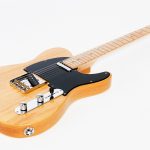
Terry Kath 1946-1978: Tribute To The Heart of Chicago
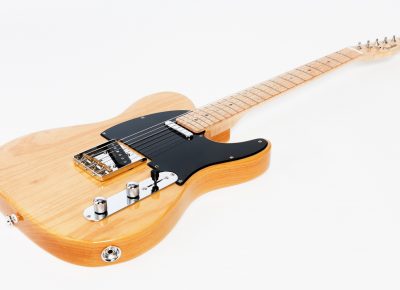
It’s not that the Internet is completely devoid of the definitive Terry Kath tribute. There is an excellent documentary about Terry put together by his daughter, Michelle Kath Sinclair. There is also this terrific Premier Guitar piece from Corbin Reiff.
But as a deeply devoted fan of Chicago…the edition featuring Kath…I decided to post my own thoughts.
There’s one thing that always sticks in the forefront of my mind when I think about Terry Kath. And that’s that an eight-piece band of all-star musicians and songwriters, who had established groundbreaking rock greatness like few acts in history, became a very un-unique and un-special act after their guitar player’s departure from this world. There may never have been a musical group that was so impacted by the loss of one member.
I’ll get to that.
How Terry Kath Died
If you’re reading this tribute, you probably already know the story of Terry Kath’s untimely death at age 31. He was cleaning his guns and one of them went off.
I have read numerous accounts that tell basically the same story. On January 23, 1978, Kath was visiting with roadie friend Don Johnson, who expressed concern that he was playing with guns in the tired state that he was in after several days of drugs and partying. Terry showed his friend an empty clip, to assure him that it wasn’t loaded, and then put the clip back in the gun. But the gun still had a bullet in the chamber, and as Terry was waving the gun near his head, it fired and killed him instantly.
The story is senseless and heart-wrenching, especially considering that he had a 20-month old daughter at the time. I won’t dare venture into what he may have been thinking in the last moments of his life. All I know is that his bandmates said that he was depressed about certain things, like the direction the band was headed, but they are adamant that he wasn’t suicidal.
The thing I find curious about it is how a gun enthusiast like Kath wasn’t aware that even with an empty clip, a gun can still be lethal. I’ve talked with gun enthusiasts on firing ranges, and they are taught frequently to treat every gun as if it were loaded. Certainly, waving a gun around carelessly, loaded or not, would get you expelled permanently from most shooting ranges.
There is a long list of performers whose drug and alcohol excesses led to their untimely demise…Keith Moon, Jimi Hendrix, Jim Morrison, John Bonham, and Whitney Houston are just a few. John Lennon’s death at 40 wasn’t from substance excesses, but he very well could have perished from them…as could David Crosby, Eric Clapton and dozens of others.
Terry Kath’s death, while not directly drug-related, is part of a sad statistic of self-destructive behavior that seems to be a character trait with so many gifted artists. He wasn’t a stupid guy, but waving a gun around when you’ve been awake doing cocaine for a couple of days isn’t very smart.
The life of a star performer is not an easy one. One need only look at the bizarre behavior of larger than life megastars…Elvis Presley and Michael Jackson are perfect examples…to see the destruction of sanity in a human that the fame fishbowl can wreak.
Popular artists become surrounded by people who want to keep the gravy train and the party going. There is always pressure to equal or surpass your output, from both fans and record company executives. To remain the performer…and the person…that sold so many records and tickets. It’s an impossible standard to ask of anyone, let alone someone whose mental health may already be fragile to begin with. Many artists become famous by communicating a human hurt we can all relate to. In other words, they’re human.
The pressure of fame and wealth, and the energy needed to perform capably throughout a lengthy tour (and Chicago had a much more rigorous touring schedule than most acts), is enormous. It’s not hard to see why drugs and alcohol become attractive to performers, especially to younger ones whose bodies can initially take the abuse. Ultimately, the dependence on substances often becomes their undoing, even if they survive physically. Chicago was no exception. Like the Beatles, they weren’t anywhere near the squeaky clean act people thought they were.
Whatever Terry’s motivation for living so dangerously and paying the ultimate price, an outstanding guitar player, singer and songwriter was suddenly gone, and the impact on his bandmates was devastating.
I’m of the opinion that Chicago should have, at the very least, taken a long hiatus after Kath’s passing. There were multiple strong talents in the band, and losing any of them would have left a massive hole, but it was Kath who kept Chicago doing what they did best…play rock music with horns.
For whatever reason, they decided to keep going, and in every subsequent Chicago effort to this day, you can hear the glaring absence of Terry Kath.
A Band That Was Never the Same
Negativity alert: Please do not misunderstand what I am saying throughout this post. I am NOT, by ANY stretch, intending any disrespect to the other members of Chicago. They are all outstanding musicians and I am a huge fan of the whole band. I am simply saying they changed enormously after Kath’s death, and not in a good way in my opinion. Carry on…
The direction Chicago was taking even while Kath was alive wasn’t noticeably alarming. As a fan, you didn’t really mind sappy ballads like “Baby What A Big Surprise” and “Take Me Back To Chicago”, as long as great blues rockers like “Mississippi Delta City Blues” and “Takin’ It On Uptown” were there to balance the records out. In fact, it gave Chicago albums a nicely rounded feel, full of varying moods.
But once the albums no longer contained Terry compositions, the trendy disco stuff that was starting to appear on their records…songs that sounded like “Vote For Me” or “You Get It Up”…just became annoying.
Literally in the opening seconds of Chicago’s first post-Kath record, Hot Streets, the listener instantly recognizes that this is not the Chicago they knew and loved. As “Alive Again” begins, and as Chicago starts to sound like a Bee Gees knock-off, I imagine a hardcore fan shaking his head and saying, “They should have quit.”
To me, it brings to mind the movie Back To The Future Part II, where the viewer learns very early that the incomparably beautiful Claudia Wells is no longer playing Jennifer Parker. It’s an instant and brutal disappointment. And neither the movie nor the Hot Streets album, in fact the entire movie series and Chicago’s subsequent catalog, ever recover from that initial blow.
Does that sound like exaggeration? Excepting maybe “No Tell Lover”, which possibly could have made it onto Chicago XI, nothing on Hot Streets sounds like vintage Chicago…gone is the rough and heavy rock sound that dominated their earlier albums, replaced with the typical polished production of the latest pop records. There are no rockers or blues numbers on the album, and Donnie Dacus sounds absolutely nothing like Terry Kath. It is, ultimately, a depressing album to listen to, knowing that this band once produced “A Hit By Varese”, “Brand New Love Affair”, and “Sing A Mean Tune Kid”.
And if you thought the situation for hardcore fans of the band was dire then, wait until you heard the next two albums.
Chicago 13 doubled down on one of rock’s greatest and most original bands attempting to cash in on the disco movement. Making matters worse, they failed to produce any hits doing it. The album made it to #21 on Billboard…great for almost any other act, but a subpar showing for this one. Chicago 13 finally put an end to sales based on name recognition, causing the equally weak Chicago XIV to top out at a dismal #71.
It was easy to think at this point that Chicago had died with Terry Kath. It’s also arguable that he might have left the band rather than continue in the disco/ballad-oriented direction where they were already headed at the end of his life.
In fairness to the band, they were unquestionably still shell-shocked. (That might be a poor choice of words, but it’s probably the best to describe it.) Terry Kath wasn’t just a superb guitar player, singer and songwriter that would have been irreplaceable in any group. He was a close friend who had lived the fishbowl existence with all of them for years. To have him suddenly gone clearly left a gigantic hole in the band’s heart…or maybe they felt he truly was the heart of the band. Decades later, members of the band still get emotional talking about losing Terry.
Again, I am no mind reader. I could be utterly off the mark saying this. But there may have been a subconscious…or even conscious…effort on the band’s part to avoid sounding anything like the band he was in, or even to strive to be that groundbreakingly great again; that to do so would be to tarnish Kath’s legacy.
I probably shouldn’t go there. But if that were the case, they succeeded. Nothing screams Terry Kath’s greatness like listening to Chicago without him.
I will say this about Chicago’s descent into making ballad-oriented hits: it did, eventually, help them get back on their feet popularity-wise and grow an audience again. I guess any Chicago is better than no Chicago, especially if you were too young to see them live in the Kath era, as I was.
Through the Chicago 16 – Chicago 19 albums, the Chicago machine cranked out quite a few hits and sold a lot of records. Maybe it helped expose a whole new generation to the band that is Chicago…and maybe a few became longtime fans of the band and their entire history, including the period featuring the brilliant guitar player who departed from us far too soon.
Was Terry Kath A Criminally Underrated Guitar Player? Yes, But…
It has become a well-known story that before the band was popular, Jimi Hendrix approached the Chicago Transit Authority’s saxophone player Walter Parazeider after a show. According to Parazeider, Jimi gave him an immortal quote: “Your guitar player is better than me.”
In his excellent tribute to Kath, Corbin Reiff shares the story, and he declares Kath to be “one of the most criminally underrated guitarists to have ever set finger to fretboard.”
Yes, Terry Kath was undoubtedly underrated, criminally so if you choose to take such a stand. But it isn’t hard to see why as a Chicago fan.
Chicago featured a sound that few rock bands had, and certainly none who had perfected it to that degree: a dominating and powerful horn section. The band basically had no weaknesses, but the horns defined Chicago like the piano defined Elton John.
Add Peter Cetera’s vocals, Robert Lamm’s compositional skills, and Danny Seraphine’s fast and furious pounding on the drums, and it’s easy for a guitar player who was content to add his parts from the back of the sound board to avoid being noticed for his phenomenal skills.
One large reason Kath was so underrated was that you simply didn’t hear him very often. The horns dominated most of the songs from the Kath era, giving the impression that Kath was a less important member of the band…until he took the lead and played a solo. In several of Chicago’s best known songs, such as “Feelin’ Stronger Every Day” and “Colour My World”, you would hardly even know there was a guitar player in the band.
Quite a few outstanding rock musicians have been overshadowed by their bandmates…Alex Lifeson of Rush is a great example…especially if they’re willing to let their technique and prowess take a back seat to making the music as great as it can be, as Kath always seemed happy to do. No one ever complained that there was too much horn playing in Chicago songs…in fact some of their biggest fans often lament that the trademark horn punctuation is absent from its former glory in the post-Kath era.
It was when Terry stepped into the spotlight that you realized that Chicago was ultimately a rock band. Songs like “25 Or 6 To 4”, “South California Purples”, and “I Don’t Want Your Money”…three great Kath showcases…are what kept Chicago from being an adult contemporary artist, the kind of group your parents approved of. (One of my father’s all-time favorite songs was “Beginnings”, and we didn’t agree on music much.)
Kath was, as the best self-taught guitar players often are, a true original. Aside from his Hendrix-like moments, like “Oh Thank You Great Spirit”, it’s difficult to put a finger on who you think might have been an influence on his playing. He was part Jimi Hendrix, part George Benson, and part no one you ever heard before.
Want some examples? They’re coming…but first…
…He Was An Underrated Singer and Songwriter Too.
I remember having a long phone discussion about Chicago’s greatness with my brother Tom. Tom and my other brother Doug differ greatly on musical taste, and I’m somewhere in the middle of the two. But the three of us all agree with Jimi Hendrix that Chicago were “mother****ers”.
I mentioned their having three very capable singers, a feat matched in pop music arguably only by the Beatles, and Tom agreed with a great quote: “When your worst singer is Bobby Lamm, you’ve got no problems.”
The wide range of vocal greatness is another often overlooked element of Chicago brilliance. As just one example, give the Chicago XI record a listen…starting with Kath’s crooning over a lost love in “Mississippi Delta City Blues”, followed up by Peter Cetera’s “Baby What A Big Surprise”. And so on through the album. The variety of songs was punctuated by the variety of vocal styles, but no matter who did the singing, it was always done well. You almost took it for granted after a while.
Lamm described Kath as “the white Ray Charles” on vocals, and that’s probably as accurate a description as any of Kath’s voice. It had a rough, smoky quality to it, and it was perfect for the rockers and soulful blues numbers in Chicago’s catalog (even if Lamm capably sang on a few of them).
Kath sang lead some of Chicago’s most well-known songs, including “Make Me Smile” and “Colour My World”, but it was the numbers he sang on that weren’t hits that kept Chicago a valid rock and blues act, especially in the band’s later albums.
When Kath departed from this world, the band unquestionably missed his vocals too. The voice that sang “Make Me Smile”, “Once Or Twice”, and “Takin’ It On Uptown” is a lot of soul to replace.
Terry Kath Top Ten Performances
When I was trying to pick out songs for this list, I struggled choosing the best ones, so I consulted Doug via e-mail on the matter. His initial response was “that’s a tough one”.
About a minute later he e-mailed me again with one sentence: “Sing A Mean Tune Kid”.
I gave it a listen and thought, damn, he’s right. But I put it at #2. You’ll understand, I promise.
10) Rediscovery (Chicago VI) – On an album with upbeat, apostrophized numbers like “Feelin’ Stronger Every Day” and “What’s This World Comin’ To?”, “Rediscovery” takes the listener down into a soulful mood, and Kath’s guitar fuels the bluesy romp. Not sure why they chose to use Robert Lamm’s voice on this one rather than Kath’s, but Lamm gets it done, and it’s a cool off-the-beaten-Chicago-path track. Kath shows some seriously skilled melodic playing throughout the song, especially in the conclusion, with his unparalleled mastery of the wah-wah pedal.
9) Ain’t It Blue? (Chicago VIII) – I’ve read a lot of posts that would suggest that “Oh Thank You Great Spirit” is Terry’s masterpiece on the Chicago VIII album, but I prefer this one…not only is Terry practically playing a solo throughout the song and singing, his blues voice is perfect for the Lamm-penned lyrics…about how achieving fame brings with it a whole new set of pressures: “Sometimes I want to walk away, I felt like that just yesterday” is one of Kath’s lines in the song. Play this one next time you think being wealthy and famous is the life.
8) I Don’t Want Your Money (Chicago III) – Kath plays grunge long before grunge was cool here, and if you needed evidence that Chicago could rock with the best of them, here you go. It’s a rare Chicago tune that prioritizes guitar playing over the horns, and doesn’t suffer at all for it. Before the song you can hear Kath counting it off, and then immediately breaking into string bending, screeching chords. As Lamm bellows about preferring to stand outside to “your social standing”, Kath keeps a heavy rhythm going, with accented riffs and continuous howling on the guitar.
7) Byblos (Chicago VII) – It’s an emotional ode to falling for a woman unexpectedly, missing opportunities to be with her, and believing there will always be another chance someday…which there usually isn’t. Terry sings the lyrics soulfully, plays a beautiful riff on the acoustic guitar, and even adds some screeching electric riffs in between. It’s buried on an album with huge hits like “Wishing You Were Here” and “I’ve Been Searching So Long”, but it’s one of Chicago’s most beautiful songs.
6) Takin’ It On Uptown (Chicago XI) – While I rank “Mississippi Delta City Blues” among my favorite Chicago tracks, this one is arguably the better Terry Kath showcase on this album. It features his throaty vocals and wailing guitar riffs, and he throws in a couple of smoking guitar leads at no extra charge. Both songs counterbalance the trend of more melodic, danceable (ugh) contributions from both Lamm and Cetera on Chicago XI…making this album strong evidence how important Terry was to the band.
5) South California Purples (Chicago Transit Authority I) – There’s a lengthy guitar solo on this number that channels Chicago’s inner Blood, Sweat & Tears…it’s Terry wailing at his bluesy best, his fingers all over the fretboard making his guitar moan, screech and warble. All complimented with Lamm’s funky organ riff and of course, Chicago’s trademark blaring horns. It’s another track that might have been equally good or better with Kath on vocals, but Lamm handles the job just fine and lets Terry slam.
4) Dialogue Part II (Chicago V) – Kath starts the second half of Chicago’s classic social statement playing a simple riff. Then as the rest of the band and horns join in, Terry begins to improvise, playing a solo that features all of the tools in the toolbox, bleating and dancing throughout. As the voices sing “we can make it happen”, Terry continues on, never losing the key and never straying from the upbeat horn riff. A well-known classic among Chicago fans, made infinitely better with Terry’s continuous improvisation on the guitar.
3) Aire (Chicago VII) – I’ve read tributes that point to “Song Of The Evergreens” and “Byblos” as the top Kath statements on the Chicago VII album, which is understandable – great songs both. But check out the guitar playing in the instrumental second track. After 2:20 of his solid rhythm for the continuous horn pattern, the song takes a sonic left turn. Terry takes over with a long, soulful solo that compliments the jazzy instrumental perfectly. As if to appreciate the greatness of his guitar sound, the rest of the band seems to totally back off for the two-plus minute lead, rightly letting Terry steal the show.
2) Sing A Mean Tune Kid (Chicago III) – It’s one of Chicago’s longest tracks, clocking in at 9:18, and much of that nine minutes is irrepressible jamming with the horn section and Kath. At around 4:21, he of the insane improvisational guitar skills takes over…and jams his heart out as Lamm, Cetera and Seraphine bring a banging background. The song slowly quiets down, giving the appearance of concluding…but then Terry decides he isn’t done. He offers up another couple of minutes of string-bending guitar precision, which seems to slowly wake the rest of the band up again. In the end, the song somehow manages to seem too short.
1) 25 Or 6 To 4 (Chicago) – One of the greatest, most memorable rock guitar solos ever, which turns an already great rocker into an instant classic. Terry not only plays a lengthy, musically untouchable solo in the song, he adds little touches in the background during the song itself, especially at the end, all as only Terry Kath could do it. But it’s the guitar solo, Terry’s mastery of the wah-wah pedal, and Danny Seraphine slamming nasty fills throughout, that adds even more meat to one of the least vegetarian songs in rock history. (Check out the Steven Wilson remix – it’ll make your chest hair grow. Yes, even if you’re a girl.)
So if you want real exposure to the greatness of a criminally underrated guitar player, and if you want to see how important he was to the band, start by putting these ten in your playlist.
Then go from there with the first 11 Chicago albums. You won’t be disappointed.
An Untarnished Legacy
There are quite a few stories of rock acts and their reaction to a key member leaving or passing on. Led Zeppelin chose not to continue after John Bonham’s death, and probably rightly so. After Keith Moon’s passing, The Who would make a couple of passable albums with Kenny Jones on drums, but they soon became, like Chicago, a touring act based on former glory. Van Halen pressed on after their charismatic lead singer left at the peak of their popularity, and turned out just fine. Pink Floyd fans one day learned that Roger Waters wasn’t the heart of the group after all.
Much is made of Peter Gabriel’s departure from Genesis and the band’s increasing popularity, which coincided with their decreasing integrity, to listen to many fans. Phil Collins is often credited…or blamed, depending on your worldview…for Genesis’s explosion in record and ticket sales, while fans of the Gabriel era lament that the band’s true peak was The Lamb Lies Down on Broadway, their last effort with Gabriel.
I mostly agree with that sentiment. But it’s my contention that while the band changed quite a bit and got overly commercial at times, they still made plenty of high quality and listenable albums with Phil as their frontman. I love Gabriel-era Genesis, but I also think Wind & Wuthering, …And Then There Were Three…, and Abacab are great records too. Genesis made plenty of terrific music without Peter Gabriel.
The same cannot be said about Chicago minus Terry Kath. That may just be my opinion, but I think it’s shared by quite a few people. They may have been headed down the least respectable path a rock band could go in before Kath’s tragic passing, but it’s doubtful that even Kath would have expected it to go as far down the hole that it did.
Chicago may have had a few hits and recovered popularity-wise with the Chicago 16 and Chicago 17 records, but to a fan that loved the first 11 Chicago albums, none of that era sounds like truly signature Chicago. It’s impossible to imagine songs like “Hard To Say I’m Sorry” or “Stay The Night” on any Chicago record with Terry Kath on it. (And don’t get me started on the “25 Or 6 To 4” remake.)
They may still have had plenty of songwriting and playing ability, but anything distinguishing Chicago from any other hit-producing musical act was undeniably gone after the tragic events of January 23, 1978.
That this band could still fill arenas decades later based on their first nine studio albums, when you think about it, is astonishing. Over four decades after Terry Kath’s passing, people still love the songs he played on enough to go see a few of his bandmates still play them.
It is one hell of a musical legacy.
But Terry Kath was one hell of a guitar player, songwriter and singer.
Did this post make your day a little bit?
I hope so. If it did, I would really appreciate your support.
When you use this link to shop on Amazon, you’ll help subsidize this great website…at no extra charge to you.
Thanks very much…come back soon!
Raoul and the Kings of Spain – Tears For Fears – BAYNH
Tears For Fears’s Raoul and the Kings of Spain easily makes my list of Best Albums You Never Heard. It was their least successful studio album commercially, for a variety of reasons, yet it contains some of the finest work released under the TFF name, IMHO. Hope you enjoy my thoughts about it, and give the record a try if indeed you’ve never heard it.
Raoul And The Kings of Spain – The Best Tears For Fears Album You’ve Never Heard
So I did a search for “What’s the best Tears For Fears album?”, and apparently I’m in a very small minority in thinking Raoul and the Kings of Spain deserves the honor.
“Ranker” puts it dead last of the six official non-compilation releases, resulting from fan voting on the matter. Jeff Fiedler at “Discog Fever” gives it a D+, his lowest rating of all the Tears For Fears records. Fiedler even gives Saturnine, Martial and Lunatic, a mostly unmemorable collection of B-sides, a B- rating, so that’s how little he thinks of Raoul.
If you think album sales reflect public opinion, Raoul and the Kings of Spain is at the bottom of that food chain too. (There’s plenty of other factors involved in record sales, of course, which is pretty much why I’m writing this series of posts). The album topped out at #79 in America, and was the first Tears For Fears studio release to earn no metal-based certifications.
So you might be able to, as I did, find the CD cheaply at your nearest used record store. I may have bought it thinking something like, it’s four bucks, how bad could it be? I took a minimal risk and got a hell of a bang for my buck.
First, a bit of background on TFF’s history prior to this record, then I’ll share what I think makes it great.
After the enormous…and for once in this industry, well deserved…success of 1985’s Songs From The Big Chair, it was four long years before we heard a follow-up from Tears For Fears. That’s a long enough time to make adolescents who loved a few hit songs forget about an artist, but 1989’s The Seeds of Love was a solid effort, spawning quite a few of the band’s best known songs, including “Woman In Chains”, “Sowing The Seeds of Love”, and “Advice For The Young At Heart”. It went as high as #8 on the U.S. album charts and made it to platinum status.
However, while The Seeds of Love is a great record, it lacks the cohesiveness of Songs From The Big Chair, if you’ll permit me to sound like a music critic snob for a second. Several songs, like “Badman’s Song” and “Year of The Knife”, don’t seem to really fit into the record overall. This is a small criticism I have of otherwise excellent Elemental album too.
I have a point here, I think. It’s that Roland Orzabal and Curt Smith don’t seem to be quite in sync as a songwriting tandem on Seeds of Love, with a clear direction on where to take the album. And indeed, the two parted ways (that old “artistic differences” bit) after this record.
(By the way, I’m well aware of my namesake being a key member of the group. Curt with a “C” is far more talented than I am, however, so people rarely get us confused.)
Anyway, Orzabal, who owns most of the songwriting credit for TFF’s best known works, released two records under the Tears For Fears moniker, Elemental in 1993 and Raoul and the Kings of Spain in 1995. But again, there was another four year layoff before Elemental appeared, which is often too long for a pop artist especially to stay at least commercially successful.
This is another important point. Dark Side of The Moon would likely have been Pink Floyd’s apex had they not released The Wall. But had there been a four year layoff between Dark Side and Wish You Were Here, and then another four years before Animals, would The Wall have been so warmly received or even heard by many? It’s doubtful. They might not have even had a recording contract by that point, at least with a big money outfit willing to spend promotional dollars.
So by the time Raoul and the Kings of Spain was released, the music-buying masses had either forgotten about Tears For Fears, unjustifiably considered them in artistic decline, or possibly even considered the band to be an eighties flash in the pan. They weren’t, unfortunately, prolific enough to establish the type of following that results in every new release topping the charts. It had, after all, been a decade since Songs From The Big Chair, and we’d only heard two albums since.
Add to all of this the band’s record label switch (from Mercury to Sony) just before the release of Raoul, which will often disrupt promotional efforts, and the end result is one of the Best Albums You Never Heard.
Raoul and the Kings of Spain, according to Roland, isn’t technically a concept album. But it sounds very much like one, especially with the second half of the album starting with “Los Reyes Catolicos” and ending with the reprise of the same song. The songs reflect a similar theme of familial relationships, and they seamlessly blend into one another, more effectively than on most Tears For Fears albums.
In other words, in this writer’s opinion anyway, it’s the first TFF record since Songs From The Big Chair to feature that “cohesion” again…all of the songs seem to actually fit on the record. There isn’t any song on it that veers away wildly from the overall sound.
There are so many outstanding hooks on Raoul and the Kings of Spain. Every song has a grabber moment to me. But a few really stand out and make me think Roland Orzabal is one of Planet Earth’s great composers.
In “Falling Down”, there’s the wailing guitar backing as Roland sings “falling down, falling down” towards the end of the song. It grows increasingly chaotic and heavier before reaching a sustained, bending high note. The song then goes quiet, ending with the simple guitar riff that it started with. It’s Beatle-esque musical genius.
There’s the mellow guitar phrasing in “Secrets”, with a lead that, like most of the guitar solos on this record, blends beautifully back into the song. Roland made a video for this one, and it’s an obvious single, but for whatever reason it never picked up steam. Speaking of the Beatles, if someone told you it was Ringo playing the drums on this one, you’d easily believe it.
“Me and My Big Ideas” brings back the soulful voice of Oleta Adams, who graced us all with her vocals on The Seeds of Love. This is one of her better performances with Tears For Fears, and that isn’t a knock on her outstanding performance on Seeds. The mellow mood of “Me And My Big Ideas” works perfectly with the haunting “Los Reyes Catolicos” reprise closing the album.
That’s just a small few. But there are no weak cuts on this record.
It’s hard for me to pick a favorite song, but “I Choose You” might be it. It’s a highly emotional piece based around resounding piano chords and slow acoustic guitar. I have listened to Raoul dozens of times, and I still get chills at the piano part backing the second verse, and the increasing volume of the piano and violins as the song climaxes. Orzabal is so good at emotional music, and this one could have been another huge hit if TFF was at their 1985 level of popularity.
In addition to all of the musical hooks, there’s Orzabal’s powerful voice. He is underrated as a singer, not just because of the full impact he can bring to a vocal part, but also his versatility. I’m speaking for myself here, but as a “casual fan”, I literally didn’t know for years that this album didn’t feature Curt Smith. The changing vocal tones in “Falling Down” is a great example. It’s easy to think it’s two singers.
Roland sings passionately throughout the disc, starting with the opening title cut. He goes full boar deep in certain moments, and soft and gentle in others, often effortlessly making the transition in the same song. Many of the hooks on Raoul, such as his howling in the opening track, come from the vocals. The melody lines add just as much drama as the guitar hooks.
Last but not least, the musicianship on Raoul isn’t shabby either. The endings of “Falling Down” and “Don’t Drink The Water” are great examples…there’s some great work on all of the instruments going on, especially as the songs build up to a crescendo. Gail Ann Dorsey contributes superb bass lines, and Alan Griffiths performs marvelously sharing the guitar playing…and songwriting…duties with Roland. (More about Griffiths when I write about Tomcats Screaming Outside.) It’s a truly collaborative effort.
Without Curt Smith, Raoul and the Kings of Spain may not be an “official” Tears For Fears record in many fans’ eyes. I get that. But the album is Roland Orzabal at his songwriting, singing, and performing best, with a backing group that is more than equal to the task. Had Raoul been released in 1986, I’m certain it would have easily achieved multiple platinum status.
Before I lucked into finding this record…and I kid you not, the first I’d heard of it was seeing it in a used record store…I was a casual fan at best, who liked Tears For Fears enough to own Songs From The Big Chair and a greatest hits compilation. Raoul and the Kings of Spain made me a far more appreciative admirer of their work, and I now own and love every Tears For Fears studio record…including Roland’s Tomcats Screaming Outside solo effort. But Raoul is still my favorite. It’s that good.
If you are a Tears For Fears fan at any level, if you even liked them enough to own Songs From The Big Chair or The Seeds of Love or even a Greatest Hits compilation, get this record. You won’t be sorry.
Did this post make your day a little bit?
I hope so. If it did, I would really appreciate your support.
When you use this link to shop on Amazon, you’ll help subsidize this great website…at no extra charge to you.
Thanks very much…come back soon!
This post contains affiliate links. If you click on the links and then make a purchase, the site owner earns a commission at no extra cost to you. Thanks for your support.
Photo credit: kellyv on Best Running / CC BY-ND
Photo credit: kellyv on Best Running / CC BY-ND
Photo credit: Raph_PH on Best Running / CC BY
Photo credit: Raph_PH on Best Running
The Best Rush Albums Ranked (One Fan’s Opinion)
Here it is, a list of all the studio albums from rock’s greatest artist, ranked by a “get a life!” level fan. My brother (who is every bit as much of a fan) and I send lists to each other all the time ranking albums of our favorite artists…but I hadn’t realized that Rush fans publish blog posts targeting “best Rush albums ranked”. So I figured I’d add to the noise.
Since I am as devoted a Rush fanatic as anyone out there, and I spent thousands of dollars on records, concert tickets, T-shirts, posters, and tour programs, I feel like I’m at least partly qualified to share an opinion on the best to worst Rush albums. Drop a line and take issue with my rankings if you want…I’d love to hear what you think. Just note that just because I rate an album low doesn’t mean I hate the album. Any Rush is better than no Rush.
Without further ado, the best Rush albums ranked worst to first by a ridiculously dedicated fan. (All album cover images are courtesy of Rush.com – SRO Management said I could use them.)
20) Rush (1974)
The debut album, but with all due respect to the competent but rudimentary drummer John Rutsey, it’s not a proper Rush album. It’s an energetic effort from a young raw band with aspirations of being Led Zeppelin, but it has its moments, like “Here Again” and “Before And After”, and of course, the concert staple “Working Man”. But “Working Man” was so much better live, with Neil adding his thunderous fills. It’s not a bad record, but without Neil, it isn’t Rush.
19) Hold Your Fire (1987)
The production on Hold Your Fire is as great as any Rush album. Neil’s drums (Ludwigs!) in particular sound fantastic. But the songwriting on this record may be Rush’s weakest, with several songs (“Mission”, “Second Nature”, “Open Secrets”) based around a similar, unexciting two-chord progression. Still, “Force Ten” and “Turn The Page” are vintage Rush classics, so the album does have some merits.
18) Feedback (2004)
Forget about this one fans? Hey, it counts…an album of the band covering many of the songs they played in Ontario garages before the band even had a name. And yes, I rank it above Hold Your Fire, because it contains some booty-kicking covers, especially “Summertime Blues” and “Crossroads”…which my four-year-old son loves to bang his toy drums to. Not quite a proper Rush album per se, but it’s a fun record to listen to, with Neil’s drumming (as always) boosting all the cuts.
17) Roll The Bones (1991)
I was really disappointed in this one, following up the excellent Presto with an album of less memorable songs, several of which are among my least favorites in the Rush catalogue. “Dreamline” is a live classic of course, and there are some inspiring lyrics, like “Heresy”, a song about so many lives being wasted under communism. And as with every Rush album, Neil drums his rear end off. But overall a decidedly un-Rush record, and one I don’t put in the player often (although my kids love the title cut).
16) Caress of Steel (1975)
It’s an important point in the band’s career (and I’ll talk about that sometime), because it showed a willingness to experiment into artsy-type rock that had an audience then. But it’s a little too ambitious, and Geddy’s voice is grating on certain songs, like the otherwise excellent “No-One At The Bridge”…which features one of my favorite Alex solos. They got it right with the next album, but the band went a little too far out here. Still, there are some solid cuts, like “Bastille Day” and “The Necromancer”.
15) Test For Echo (1996)
Test For Echo has some favorite Rush songs of mine…”Driven” is Rush at its excessively large prime-numbered time signature best, and “Half The World” shows Geddy’s talent for great melodies…something the band became much better at in their later years. But overall the album features mostly lesser cuts, especially the weak title track. This album featured far less synthesizers than any Rush record in years…but I was a fan who happened to like the synths in Rush songs.
14) Snakes & Arrows (2007)
This was the first new Rush release I didn’t play dozens of times the first week I owned it…not just because I thought the songwriting was the weakest I’d heard on a Rush album, but also because of the lyrics…which I saw as typical Hollywood platitudes against religion, every wealthy entertainer’s favorite whipping boy.
But this album has grown on me a lot. “Faithless”, “Bravest Face”, and “Good News First” are great songs, and I’ve softened how I feel about the lyrics, especially given that I wouldn’t wish on anyone what happened to Neil. I’ve realized there’s a lot of truth to songs like “Armor And Sword”. And there’s three great instrumentals on this record. So I moved it up a few notches.
13) Fly By Night (1975)
If you want to consider this one a debut record, since it was the first with the lineup that would remain for 40 years, then this is one of the all-time great debuts in rock. “Anthem” is a truly smoking album opener, and then you spend the rest of the album hearing how they made the right choice with their new drummer. Even then, Neil could pound the skins with the best of them…a faster Keith Moon, but with total control. Some really underrated Rush songs here, like “Best I Can” and “Making Memories”, but also some all-time classics, like “By-Tor and The Snow Dog”.
12) A Farewell To Kings (1977)
A Farewell To Kings is an important record…it showed that 2112 wasn’t a flash in the pan, and that they were capable of great songwriting and expanding their sound. I’m not as much of a fan of “Cygnus X-1” as some Rush addicts, but “Xanadu” is one of my all-time favorites, and the title cut and “Cinderella Man” feature some vintage Rush leads, with the busiest rhythm section in rock. Overall just a great record, and if you’re a hardcore Rush fan you never minded hearing anything from it live.
11) Permanent Waves (1980)
Look, as a fan I know I should be ranking this one higher. “The Spirit of Radio” and “Freewill” are two of the most popular Rush songs. “Natural Science” is an epic Rush anthem. There’s no bad cuts on Permanent Waves.
It’s just that with my aversion to Philly-area AOR-radio, I got burned out on the first two songs, so I don’t pull this one out much. “Entre Nous” and “Different Strings” are good songs, but I wouldn’t rank them among my favorites. But yes, this one contains some true Rush classics on it, and it was a breakthrough album that set the stage for Moving Pictures.
10) 2112 (1976)
“WHAT?!?! You put 2112 below (insert the 1980s Rush record you hated here)???”
I get it. I love 2112 and the 20-minute title cut may be the band’s strongest statement…not just against the music “biz”, but also against state-sponsored oppression. It kills from beginning to end. And the second side (remember records?) has its moments too, especially “Something For Nothing”.
I just feel that the band did greater stuff in their later years, and Geddy became a much improved singer. They did the conceptual thing very, very well, and then moved on.
9) Vapor Trails (2002)
I ranked this one among my all-time favorites when it was first released, but maybe after a six year hiatus I was just happy to hear a Rush album. There are quite a few outstanding songs on this one, though, like “Secret Touch”, “Freeze”, and “The Stars Look Down”, and some truly heart-wrenching lyrics following Neil’s personal tragedies, especially in the title track.
Unfortunately this album suffers from a horrible mix, something I felt was made even worse with the remixed edition released in 2013. It’s a true shame, because Vapor Trails features some of the band’s best songs.
8) Hemispheres (1978)
With Hemispheres, Rush more or less was finished with side-long (remember records?) epics…but it was a stellar final statement in that regard, with the title track telling a fictional tale contemplating the battle of heart and mind and the necessity of balance. Then there’s “The Trees”, which was one of the songs that hooked me when I first owned Exit…Stage Left.
For an added bonus at no extra charge, Hemispheres throws in the greatest instrumental in the history of rock music…“La Villa Strangiato”, a song I felt no live Rush setlist should be without.
7) Presto (1989)
This album was a significant departure for Rush and is definitely an acquired taste (it took some getting used to for me too), but it’s absolutely worth the effort to acquire it. Presto features arguably Geddy’s best vocal performance, with some brilliant double-tracked vocal harmonies, and superb lyrics about topics ranging from suicide (“The Pass”) to the hollowness of fame (“Superconductor”).
This album is great at a number of things you wouldn’t expect Rush to be great at, and every song is at least at the “good” level. An outstanding production effort from Rupert Hine, too…every instrument is sharp and clear and sounds fantastic. Probably the band’s most underrated record.
6) Moving Pictures (1981)
Again, relax. I absolutely love Moving Pictures and think it deserved all of its accolades, platinum statuses, whatever. I never tire of “Tom Sawyer”, and “The Camera Eye” is among my top five Rush songs. And the Grammy committee should have been shot for choosing the Police’s putrid “Behind My Camel” over “YYZ” for Best Rock Instrumental.
But I may be the only Rush fan in the universe that has never been all that enthralled with “Limelight” or “Vital Signs”. Plus this album has received an unfairly disproportionate amount of airplay compared to other great Rush records, so I’m ranking it here. Philly rock radio will do that to a fan.
5) Clockwork Angels (2012)
A solid and complete final statement from a great rock band still cranking out great music in their fifties…Clockwork Angels is Geddy, Alex, and Neil all at their best, rocking as hard as ever with total mastery of their instruments. All with some beautifully melodic ballads thrown in. The killer opener “Caravan”, the angst of “BU2B” and “Wish Them Well”, the haunting “Carnies”, to the bleak sadness of “The Garden”. This album is full from start to finish of vintage Rush classics, a truly remarkable final achievement.
As my brother so aptly put it, “It’s RUSH being RUSH!”
4) Grace Under Pressure (1984)
This album emerged from a troubled time in the band, as they struggled to find a new producer to replace Terry Brown, with whom they felt they couldn’t improve any further. But the struggle seemed to inspire them, and resulted in what I think is a solid record of great cuts throughout. “Distant Early Warning” is another Rush song I never tire of, and “The Body Electric”, “Red Lenses”, and “Kid Gloves” are among my favorites.
I’m a big fan of the 1980s Rush that first started turning off some of the hardcore base, so this album is special to me, but the songwriting and playing is solid throughout.
3) Signals (1982)
It’s easy for me to remember why this album was the one that hooked me forever on this band. “Subdivisions” is Neil Peart at his absolute best as both a technical and compositional drummer…and as a lyricist. “The Analog Kid” follows up brilliantly with its bouncy guitar riff. “Digital Man” wasn’t a big hit, but it’s one of those cool cuts you play for people to get them into Rush. “The Weapon” may be my favorite of the “Fear” series. Every song on Signals features vintage Rush leads, and Ben Mink’s violin performance on “Losing It” remains the best guest performance on a Rush album.
Signals is an absolute classic of a Rush record, and even as wildly experimental as it was back then, it still holds up today.
2) Counterparts (1993)
After Hold Your Fire, Presto, and Roll The Bones…of which Presto was easily the only truly solid effort…it was easy to think that Rush had descended into making more poppy records for the masses. Counterparts not only completely obliterated that, it actually improved on the best of Rush’s signature sound. “Animate” is still one of my favorite album openers, “Stick It Out” is a loud rocker with a wailing solo from Alex, and by the time a fan got to the end of “Cut To The Chase”, you thought, holy crap, this band is killing it again. This album rocks harder than the band had rocked in years.
A solid return of Peter Collins as producer, top notch sound quality, and great songs all over the record. “Leave That Thing Alone” remains one of my favorite instrumentals, from any band.
Like seemingly no other Rush fan on the planet, especially when it was released, I absolutely loved Power Windows, and I still do today. I list “The Big Money”, “Marathon”, and “Emotion Detector” among my favorite Rush songs, but there’s no weak ones…with Peter Collins in the producer’s box, the band was pushed to a whole new level of songwriting, playing, and recording.
The sound quality is superb, and the band brought in a whole new level of instrumentation, from the strings on “Manhattan Project” to the bongo drums on “Mystic Rhythms”. And if you’re a fan of Rush’s instrumental leads (which was what made their concerts so powerful), Power Windows features some of the best of them…especially on “Grand Designs” and “Marathon”.
This album wasn’t a fan favorite, but it’s very often been mine.
There you go my friends…a ranking of Rush records from one of their biggest fans, someone who loves songs from every period of their career.
Feel free to reach out and argue with me that I’m not a true fan because I ranked (Album You Hated) above (Album You Loved). That’s all part of the fun of being a fan.
Did this post make your day a little bit?
I hope so. If it did, I would really appreciate your support.
When you use this link to shop on Amazon, you’ll help subsidize this great website…at no extra charge to you.
Thanks very much…come back soon!
Note: this article contains Amazon affiliate links. If you purchase something using this link, the owner of this website earns a commission. Thanks for your support!
“It’s Neil Time” – Neil Peart 1952-2020
After the passing of the greatest rock drummer that ever lived, JerseyMan allowed me to write a one-page tribute for the Spring 2020 issue. Click here to see the PDF from that issue.
I don’t know whether the middle-aged fellow next to me was as devoted a Rush fan as I was, but he’d clearly been to a show or two.
It was 2007. The musical heroes from the Great White North were on the stage in Camden, blasting through “Malignant Narcissism”, an instrumental from their latest album Snakes & Arrows.
As rock music’s most virtuoso rhythm section took turns filling spaces on the bass guitar and drum kit, my neighbor turned to me, his face lighting up, and knowingly informed me:
“It’s Neil Time.”
I knew he was right. When Rush played a funky instrumental in the last third of a show, the next item on the menu would be an utterly mind-blowing exhibit of percussion.
Geddy Lee may be the best bass guitar player of his generation. Alex Lifeson could shred on a guitar with the best of them. Yet even sharing a stage with two rock music heavyweights, the Rush concert was about Neil Peart.
He was the one driving the music, measuring the pulse of it, bringing it with the most solid backbone his bandmates could ask for, regardless of the complexity of the time signature, despite constantly tearing into manically furious fills. Throughout the show, “The Professor” would execute ridiculously complicated drum parts to absolute microscopic perfection, so accurately that hundreds of air drummers in the audience could mimic his every move. Until the instrumental concluded and the stage became his.
To witness a Neil Peart drum solo was to experience a moment of disbelief in human existence. He was blindingly fast, playing crossovers so quickly that you worried he might chop a limb off. He was technically brilliant, with unparalleled limb independence, thumping a steady waltz with his feet as his wrists rattled the kit in a completely different time zone. The solo even became musical…he would tap on a marimba, incorporate horn samples punctuated with blasting fills, and then conclude the percussive masterpiece providing the backup to a Buddy Rich classic.
After it was over, in the wildly appreciative audience, you would both hear individual voices mouthing four letter words, incapable of rational expression, and see heads shaking in total bewilderment.
John Bonham and Keith Moon were legendary drummers, worthy of any discussion of rock music’s greats. They were both true originals. But their legacies received an assist from the biggest legend booster in music, the untimely death. Both of them perished at just 32.
Neil Peart lived 67 years, not long enough to clear the average for a human, but long enough to produce plenty of evidence, in recorded music and live shows, that he was the G.O.A.T. Argue the point if you want, but before you attempt such a foolish endeavor, try watching “La Villa Strangiato – Drum Camera” on YouTube first.
And know there’s plenty more where that came from. If I’m carrying a phone with me, I don’t even need to speak to win the argument.
I will forever be grateful for the 23 Rush shows I saw, and the life-affirming highlight that was Neil Time. A Neil Peart drum solo alone was worth twice the price of a Rush ticket.
R.I.P. Professor.
Eddie Van Halen 1955-2020: The Ultimate Rock Star
Eddie Van Halen was the greatest guitar player in the history of rock music…no matter who was behind the microphone in his band. His impact even beyond music was immeasurable.
Eddie Van Halen – The Ultimate Rock Star
Not many musicians can take that “ultimate rock star” title…the image, the persona, and the impact.
Pete Townshend and Jimmy Page embodied it all as much as anyone, but neither of them did it through virtuosity on an electric guitar. They were capable players who made their marks as songwriters more than anything else.
What made Eddie Van Halen so special was that he excelled at both. Eddie’s strength wasn’t just coaxing otherworldly sounds out of a guitar. It was doing so in a tasteful way…making the unusual sounds and technical brilliance perfectly fit the song.
He may have been extraordinarily gifted with a musical ear, but what he accomplished musically took more than talent. You have to practice a lot to be as good at playing guitar as Eddie was…and you have to put some serious time in a studio to make songs sound as great as Van Halen’s did.
They may have played in different styles and appealed to different rock audiences, but the recently departed Neil Peart and Eddie Van Halen were two of a kind. Their strength was not just astounding technical skill. It was what they added to the songs with that skill. Eddie’s guitar playing made mediocre songs good and good songs great.
That is, ultimately, what makes a rock star Hall of Fame-worthy, if I were to decide who was worthy…and I’m certain I’d do a better job of it than the Hall’s crop of judges, who for some idiotic reason thought that Van Morrison and Jefferson Airplane deserved induction before Chicago or Rush did.
How To Get A Rush Fan To Like Van Halen
I barely knew anything about Van Halen before I entered high school in 1982. At the time their latest album was “Diver Down”, and I may have been slightly familiar with “Eruption” and “Dance The Night Away” or something. I don’t really remember.
It was my high school friend Greg Mitchell who played “Little Guitars” and “Cathedral” for me, jolting me into realizing that Eddie’s skills stretched beyond this party band’s reputation. This guy could play, and he could compose too. Mitchell knew what to play for a Rush fan.
Some of my favorite Van Halen tracks are the little solo pieces of Eddie’s…like “Cathedral”, “316” from For Unlawful Carnal Knowledge, the opening synthesizer intro in 1984, and of course, “Eruption”. It’s no small trick to make little pieces of serious musicianship and artistry fit on records from a band that never seemed to take anything seriously.
I’ve never been a worshiper of any other members of Van Halen. Alex could play fast and had a great rock drum sound, but his drum parts weren’t all that imaginative, and his solo…at least, the one time I saw Van Halen live…was nothing special. Michael Anthony isn’t worth mentioning in any discussion of great rock bass players; he probably contributed more with his backing vocals than with anything he did on a bass guitar. And the revolving door of lead singers for Van Halen…take your pick…needed only to act like rock and rollers. Any reasonably decent singer on the microphone would have been enough, in this scribe’s humble opinion.
I don’t mean to be disrespectful to Eddie’s bandmates. David Lee Roth possibly excepted, they were smart enough to perform to their abilities and let their superhuman guitar player write the songs and steal the show. Mike and Alex probably deserve credit for recognizing their limitations. Trying to steal the spotlight from Eddie Van Halen would be like Denny Laine leaving Wings because he felt he was a greater talent than Paul McCartney.
Who knows…it may be a little harder than it looks to enjoy performing when you know 98% of the audience isn’t there to see you.
Eddie may have been the only exceptional artist in Van Halen, but it was enough.
Was Eddie Van Halen The Greatest Rock Guitar Player Ever?
Even if it’s a subjective question, it’s not difficult to make the case for Eddie as the best rock guitar player ever, especially when you talk about the whole package.
After all, what actually makes a great guitar player? Technical ability and precision? Songwriting and arranging capability? Live performance? Influencing a generation of guitar players? When it came to being a complete rock star, Eddie was that great, head and shoulders above the guitar heroes of his day or any day.
Maybe the best way to gauge whether Eddie Van Halen was the best ever is to ask the question: who was better?
Here are some names I can think of and what I think…and I am no guitar player, so take this for what it’s worth – the opinion of a music fan:
Jeff Beck. This is a tough one for me, because I’m a huge Beck fan, and he’s a true genius and innovator who made great music to go along with his insane playing. But ultimately, I would argue that Eddie played with more precision, especially on stage, and listening to both artists, I focus more on the guitar playing more when listening to Van Halen…not much, but a bit more.
Don’t make me ponder this one. I thought Eddie was better both technically and certainly so on a songwriting level (Beck didn’t compose most of his music), which I hate to admit as a Beck devotee.
Eric Clapton. Clapton was a great blues artist, but ultimately he was probably overrated as a guitar player. As a musician friend of mine put it, “I have no patience for a guy who’s proud to call himself ‘Slowhand’”. He was great for his genre, and I love a lot of Clapton performances…it’s no easy thing to upstage a Beatle, but “While My Guitar Gently Weeps” is brilliant because of him. But Slowhand couldn’t keep up with Eddie on a rock stage.
Joe Satriani. Again, I love Satch and I might even say that he’s technically better than just about everybody, even Eddie. The dude can shred. But all things considered, with all due respect to Satch’s music, which I like, he isn’t in Eddie’s league on a songwriting level and making a guitar part fit a song. Technically better than Eddie? Probably. Musically? Not even close.
Steve Vai. Like his mentor Satch, Vai is also superbly skilled, which was, of course, why he was featured on David Lee Roth’s solo records after Dave’s contentious split with VH. But while Vai has put out some decent solo music, he also isn’t in Eddie’s world on a songwriting level.
Yngwie Malmsteen. Yeah, the guy could play a million notes a second. But comparing Alcatrazz to Van Halen brings to mind David Letterman’s comparison of Buddy Biancalana to Pete Rose. Still, Yngwie did inspire this utterly awesome Onion headline.
Jimmy Page. There was no one better in the history of rock than Page when it came to composing musical hooks. But when comparing the two, it’s the inverse of comparing Joe Satriani or Steve Vai to Eddie…technically, Jimmy was nowhere near as proficient with an axe. Jimmy might win as a composer, but not by very much. Eddie wins hands down on technical skill and precision.
Jimi Hendrix. Jimi did a million things on a guitar that no one ever thought of, and I love a lot of Hendrix songs…I don’t think any artist’s work lent itself to covers better. But like with Clapton, I wouldn’t argue that Jimi was better than Eddie on many levels, except possibly live performance. Eddie was a big fan of Jimi, so that counts for something, but I’d argue Eddie outperformed Jimi overall.
Slash. I liked Slash in Guns-N-Roses and even more in Velvet Revolver. He’s been a part of some truly killer rock numbers. But while he’s very good, Slash doesn’t really stand out as either a one of a kind guitar player or someone with so much impact on aspiring players. Not even really a close argument.
George Harrison. He wasn’t even the best guitar player in the Beatles. Next.
Stevie Ray Vaughan. Like Clapton, Stevie Ray was another player who was great for his genre, and I am a huge fan of his too. But ultimately he falls short of Eddie on imagination…let’s face it, Stevie’s solos could get a little repetitive at times…and he wasn’t the technical wizard that Eddie was, although he was pretty darn good. SRV is one of the greatest blues rock artists ever, but he wasn’t a better guitar player than Eddie.
Allan Holdsworth. Don’t know who Allan Holdsworth is? Well, you should if you’re reading this…because Eddie himself pronounced Holdsworth to be the best. I’m including him in this discussion for that reason. Eddie wasn’t the only one who thought no one could touch Allan on a guitar. But as his lifelong dues-paying career showed, Holdsworth played music for a small niche, and his focus was more on playing than songwriting. Which is fine, even admirable in his case, but we’re talking about the whole shebang here.
(Still, I love the Atavachron album…and it’s still the best exhibit of the SynthAxe, an instrument I would have loved to have seen Eddie take up.)
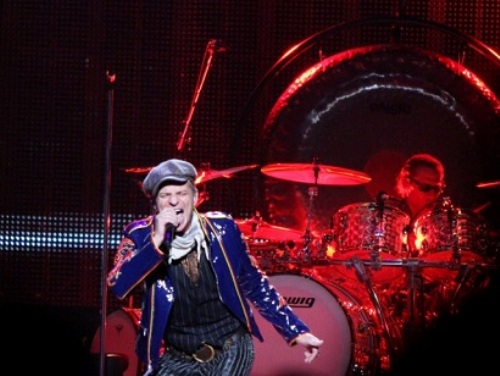
“Hey, isn’t that the guy that sang in Eddie Van Halen’s band?”
(photo courtesy Aileen Bannon: Philly2Philly.com)
Was Van Halen Better With Dave or Sammy?
As someone who owns just about every VH studio album, here’s my humble opinion…which was, judging by record sales, shared by many: it didn’t effing matter who was behind the microphone.
Okay, maybe the Gary Cherone era wasn’t Van Halen’s finest hour, but one could argue that the band had run out of gas by that point. It happens to many great artists, especially the ones who fully embrace the drinking and drugs lifestyle as they did.
It’s not that Diamond Dave and the Red Rocker didn’t have their merits as performers, but as the 5150 album proved…and quite easily I would add…Eddie was the genius behind Van Halen.
I love 5150, because I remember well when it was released and what a statement it was. That statement was: F*** you, Dave. We’ll be just fine without you. As much as Dave seemed to take credit for the band’s enormous success, it was kind of fun to see him deflated.
The Roth split from Van Halen was great fodder for the music press, especially when Dave and Eddie were trading barbs. Forgive me for not remembering the sources…Circus magazine might have been one…but I remember Eddie being quoted saying “Twelve years of my life, putting up with his bullshit.” Dave’s response: “Poor little Eddie Van Halen. Forced to live a lie.”
Dave also took a shot at Sammy, saying that Sammy will be singing “Jump” on stage, and that he would never sing a Sammy Hagar song. To which Sammy responded by handing the microphone to an audience member at a show before the band performed “Jump”, telling him, “Any old schmo could sing this song.”
It was fun for all of us to watch, I suppose. Music fans seem to enjoy dysfunction, maybe because we love to argue who was most important to our favorite acts. As recently as 2013, Paul McCartney has told the world to stop blaming Yoko for the Beatles’ demise. David Gilmour and Roger Waters went at it pretty spiritedly after Waters’ departure from Pink Floyd and Gilmour’s decision to keep the band going without him. But it probably wasn’t as fun for the band members. Later Eddie would admit that he was in tears when Dave left the group.
But the band soldiered on with what was arguably their best album at the time, and for another three albums afterward Eddie continued to improve, both as a songwriter and guitar player…which was a pretty high bar. As any Van Halen fan who remembers it could tell you, the band didn’t miss a beat when Dave departed.
Have the argument all you want whether VH was better with either singer. To this fan, it’s moot. It’s far easier to argue that David Lee Roth would never have been heard of without Eddie working his otherworldly magic on the same stage. Before replacing Roth in Van Halen, Sammy Hagar’s big radio staples were “Three Lock Box” and “I Can’t Drive 55”. The guy didn’t exactly have a Hall of Fame career without Eddie wailing on a guitar next to him.
I don’t prefer the Dave or Sammy version of Van Halen. I love songs from both eras. Because both eras feature the sound of Eddie Van Halen’s guitar.
Eddie Treated Michael Anthony Badly? Really?
I’ve read a lot in the past few days that paints an unflattering picture of how the Van Halen brothers treated bassist Michael Anthony…cutting him out of royalties, treating him like a paid session musician, and generally dismissing his contribution to the band. Sammy Hagar, from what I’ve read, was particularly disgruntled about this in his tell-all autobiography.
I imagine that the reaction, if you’re a Van Halen fan anyway, is supposed to be: That’s disgraceful! Michael Anthony’s backing vocals were a key part of their sound! He was there from the beginning! What a jerk Eddie is!
Here’s my reaction.
Michael Anthony was, at best, a marginal bass guitar player. He couldn’t measure up to a Geddy Lee or a Flea. He also contributed next to zero compositions to Van Halen’s records. If he was treated as a hired gun in the band’s later years, it’s likely Eddie could have hired a much more skilled player for the same amount of money.
When I read articles on the topic, I don’t see anyone asking the question that to me is obvious: why was Anthony collecting royalties in the first place? Up to and including the 1984 album at least, as I’ve read it, Michael Anthony was receiving a quarter of the royalties from Van Halen’s record sales…which was a pretty substantial amount of cash.
Michael Anthony became a fabulously wealthy and famous rock star on minimal talent, and he did so entirely on Eddie Van Halen’s coattails. If Eddie made Michael Anthony drink a cupful of Eddie’s cigarette butts before every show to stay in the band, I’d still say he treated him pretty darned well.
There are VH fans who would likely tell me that Anthony’s contribution was bigger than that, which I understand, because I’m always telling people the Beatles would never have made it without Ringo. And in fairness to Anthony, he’s always taken the high road in the press on the matter.
My point is just to say that Anthony’s done okay. Don’t feel bad for him.
Making Michael Jackson The Biggest Star In The World
Remember Michael Jackson’s “Beat It”? Of course you do. Even if you’re too young to remember when it was released, you’ve more than likely heard the song.
I am old enough to remember the times well.
Michael Jackson had a huge hit with his previous album Off The Wall, which featured chart toppers like “Don’t Stop Till You Get Enough” and “Rock With You”. So R&B and Top 40 radio stations were easily receptive to his new singles, “The Girl Is Mine” and “Billie Jean”, both of which quickly rose to the top of the charts.
But it was the next single from Thriller that catapulted Jackson into the stratosphere, ultimately becoming the biggest star in the world. All because of a well-known rock star’s contribution of a 31-second guitar solo.
At the time, to an extent anyway, there was a racial component to the type of music people liked. This was in 1983, when a rock star’s greatest sin was still “going disco”. It was still a time when white artists who sounded black were more easily accepted than black artists…the Bee Gees and Boz Scaggs come to mind. In the late 1970s, disco music was seen as infringing on the stronghold of rock and roll (a trend, incidentally, that Van Halen helped to reverse), and as I remember it, it was fairly rare to meet a music fan who liked both styles. Or at least admitted to it.
It’s hard to imagine that for young fans of today, who often have everything from R&B to hip-hop to blues rock to country in their Spotify playlists. But yes, that was a thing. (And I confess, I was sometimes guilty of it myself, although I was and still am a big Stevie Wonder fan.)
So for Michael Jackson and his producer Quincy Jones to include one of the most popular white rock artists of the day on Thriller was a brilliant masterstroke. Having Paul McCartney on the album wasn’t as big a deal…McCartney was a pop star, not a rock star, and everyone knew McCartney would happily boost his image by working with anyone who was popular at the time.
But rock fans who loved Van Halen trusted Eddie’s judgment enough to buy the “Beat It” single…or maybe they just bought it because they loved anything Eddie did. The single sold very, very well…and his solo was a big part of the reason. The song actually made it to #14 on Billboard’s Rock chart.
“Beat It” suddenly made Jackson much more mainstream…not just with white people, but with rock music fans who had for years been burning records anytime one of their favorite artists played anything remotely danceable. Perhaps more than any other song on the album, “Beat It” was the key to making Thriller the biggest-selling album of all time. (It still is today, incidentally, which is even more remarkable.)
It’s doubtful that Eddie realized it, but without any speeches, marching or kneeling in front of an American flag, without even really trying, he made a larger difference in race relations than most celebrities or politicians ever do. And he did it through music, where it matters most.
As he modestly said years later, it was just 20 minutes of his life. All he did was play a guitar solo. Eddie Van Halen was that good.
It’s well-known, of course, that he was not paid for his considerable contribution to MJ becoming the biggest star on Planet Earth. If he were paid $10 million for that solo, it probably still would have been a bargain for Jackson. Eddie never cared.
One wonders if any musician today with as much musical clout as Eddie Van Halen…and there weren’t and still aren’t many of them…would have made such an enormous contribution to another artist’s popularity, without bothering with what was in it for them.
Eddie may have been flawed like all of us, but that gesture was the mark of a true gentleman.
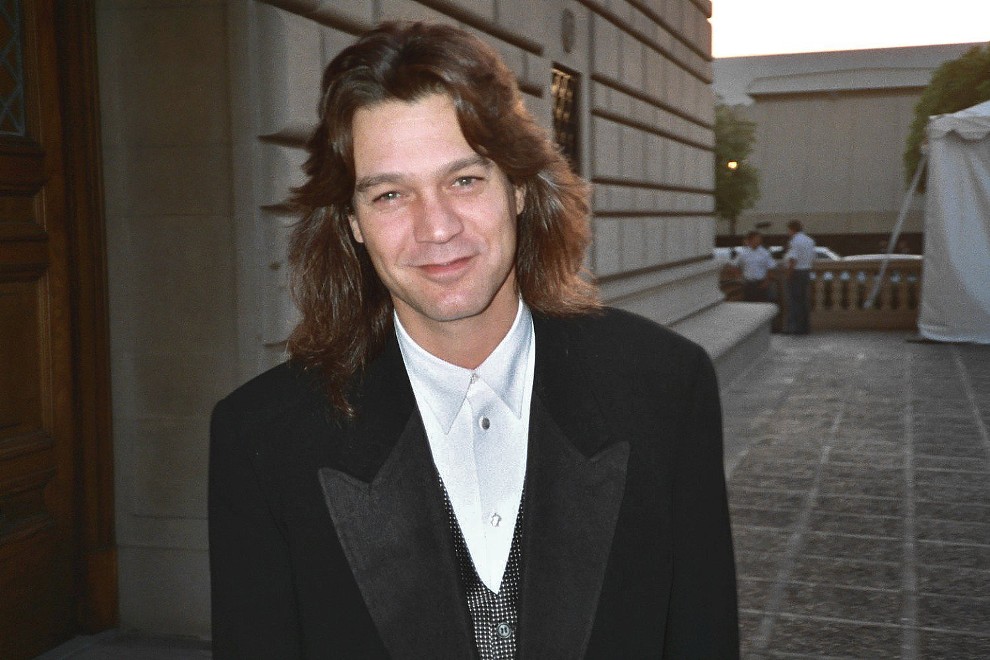
How to Win Fans and Influence Guitar Players, Principle #2: Smile.
(photo courtesy of Alan Light on flickr.)
The Million Dollar Smile
Did you notice how often Eddie Van Halen, while playing the guitar like so few people could, was almost always wearing his infectious, friendly smile?
Eddie’s perpetual beaming visage was a remarkably underrated facet not just of his appeal, but the band’s appeal. The ever present grin on his boyishly handsome face was so likable.
Of course, why wouldn’t he be smiling? He was living the dream as a wealthy, universally admired rock star, married to the gorgeous actress wife. But given all of that, the smile seemed to suggest that he was never full of himself…as he certainly could have been given the hero worship heaped on him. Even during the band’s peak, he didn’t badmouth people, he never seemed excessively brash, he praised musicians that he felt were better than he was, and he ultimately just loved to make music.
In interviews, he almost always came across as a friendly, humble guy…and infinitely more gracious than his brazen, cocky lead singer bandmate. In a way, it made him and Roth great foils for each other…if you found Dave obnoxious, you had this outstanding guitar player and affable fellow that you could pay attention to instead.
Most of us probably think we’d be smiling all the time if we were living his life too. But ask yourself how many celebrities…not just musical stars, but actors and actresses, athletes, and others…always wear a smile on their face, and always seem as friendly and humble as can be in interviews? You could easily think of a couple dozen celebrities who become more known for their political stances than anything they’ve accomplished on a stage or playing field. It’s a whole lot harder to think of a wealthy and famous celebrity who simply loves what they get to do for a living and acts like it.
Eddie wasn’t always a perfect gentleman, as we all know. He succumbed to the booze and partying lifestyle enough to cost him his marriage and probably quite a few years of performing and music making. And in his later years he came across as fairly incisive towards Dave, Sammy, and Michael.
But on a behavior level, plenty of rock stars have done worse, and ultimately the onstage smile seemed and probably was genuine, the smile of a guy who loved to play music and loved being a rock star.
To musicians who would like to become more famous: smile more. Especially when you’re playing. Make that your Eddie Van Halen influence, not the tapping technique.
A Gift For Someone You’ve Never Met
Other than Bill Bruford, Howard Jones and Allan Holdsworth, I can’t think of many of my musical heroes that I’ve met in person. I sadly never met Neil Peart or Eddie Van Halen.
That I never met either of two of my all-time favorite musicians didn’t stop me from being more than a little emotional at their departure from this world in 2020. You always feel like you know your celebrity heroes on some level, even though you really, really don’t…and would probably be disappointed at who they really are.
With both Eddie and Neil, I don’t think about losing the man. I thought about the gift they gave all of us while they were here.
The day I learned of Eddie’s passing, I drove home from work playing a thumb drive full of Van Halen music. In a random shuffle, as “Good Enough”, “In ‘N’ Out”, “Fools”, and “Spanish Fly” and other VH greats played, I realized how huge a part of our lives the music we love is. I remembered the periods of my life when those songs were new. I smiled at how I still loved so many Van Halen songs, and how I could still verbalize the guitar sounds, three whole decades later.
When an artist who created so much music that you loved is gone, a part of you is, too.
Edward Van Halen spent thousands of hours of his time on this planet practicing, composing, producing, performing, and generously giving the gift of his music, to millions of people throughout the world that he never met. And almost always with a warm, genuine smile on his face.
As saddened as I was riding home that day, I counted myself among the fortunate and grateful.
Farewell Eddie, and thank you.
Did this post make your day a little bit?
I hope so. If it did, I would really appreciate your support.
When you use this link to shop on Amazon, you’ll help subsidize this great website…at no extra charge to you.
Thanks very much…come back soon!
Photo credit: Joe Bielawa on Best Running / CC BY
Photo credit: Incase. on Best Running / CC BY
Photo credit: Sean Hackbarth on Best Running / CC BY
Photo credit: CLender on Best Running / CC BY
Photo credit: bandarji on Best Running / CC BY
Photo credit: Dina Regine on Best Running / CC BY-SA
Photo credit: kris.layon on Best Running / CC BY
Photo credit: KRISTY FOX on Best Running / CC BY
Photo credit: ArtBrom on Best Running / CC BY-SA
Photo credit: PhilipRood.com on Best Running / CC BY-ND
Photo credit: Canadian Film Centre on Best Running / CC BY
Photo credit: Walt Disney Television on Best Running / CC BY-ND
Note: this article contains affiliate links. If you make a purchase through these links, the website receives a commission at no extra cost to you. Thanks for your support.

